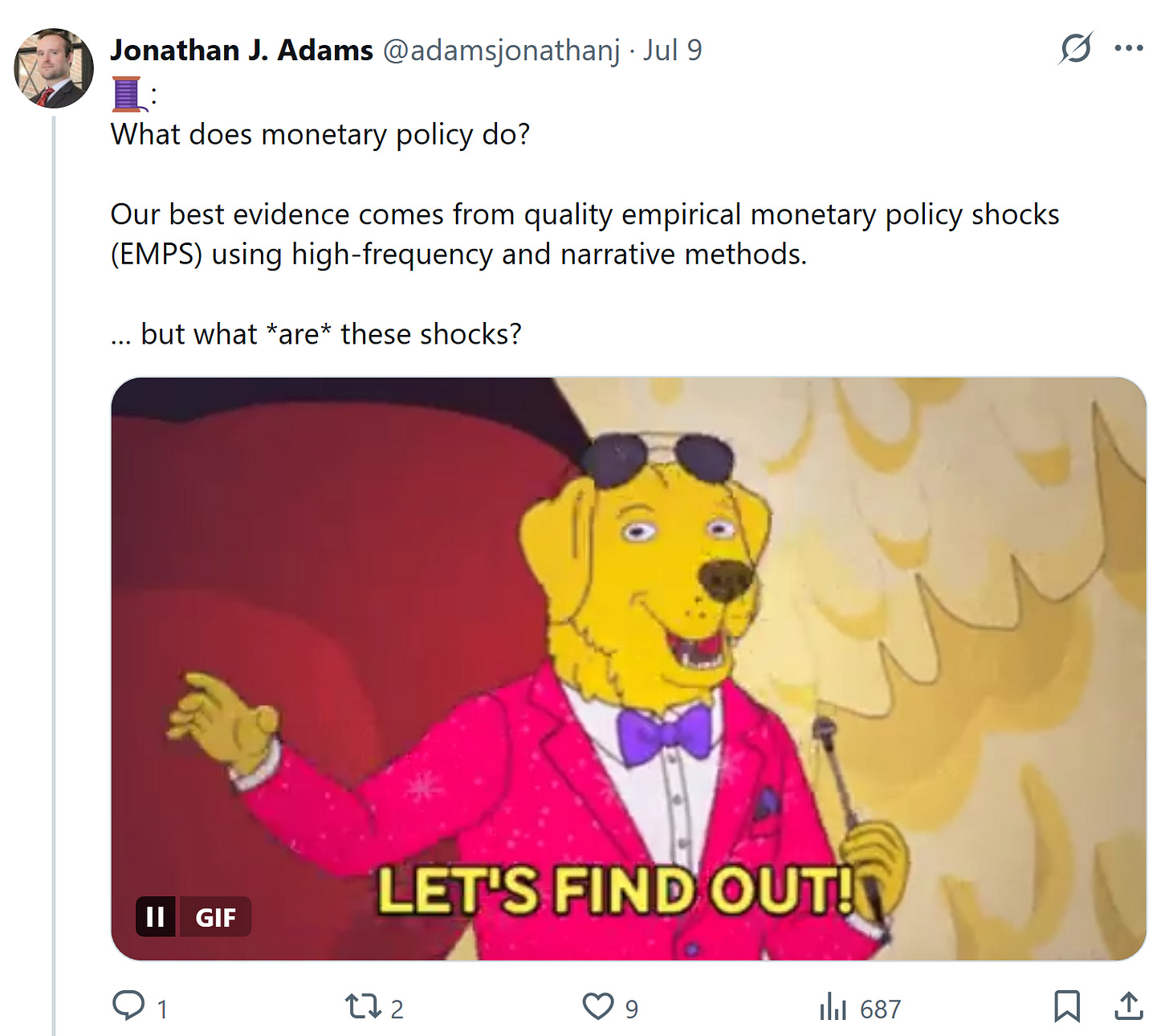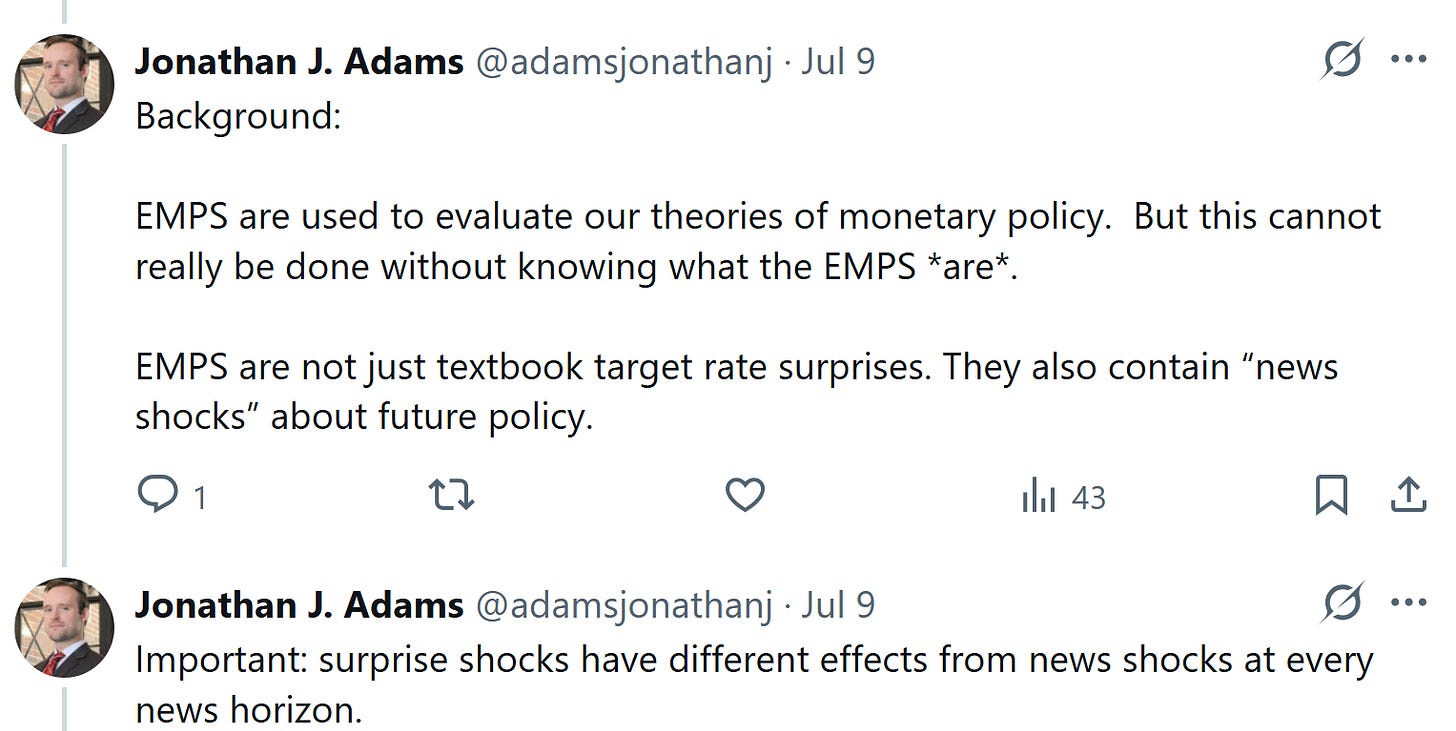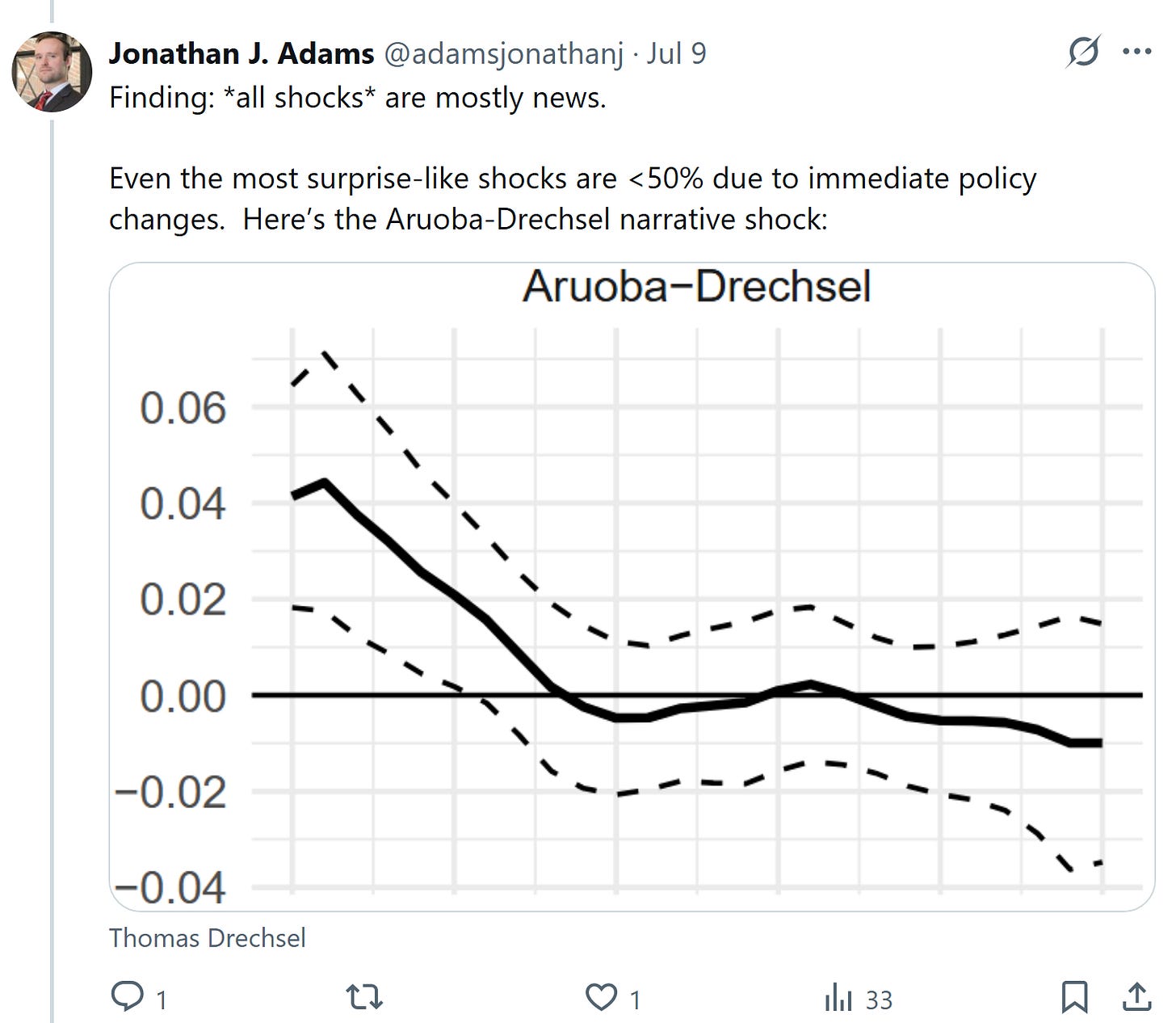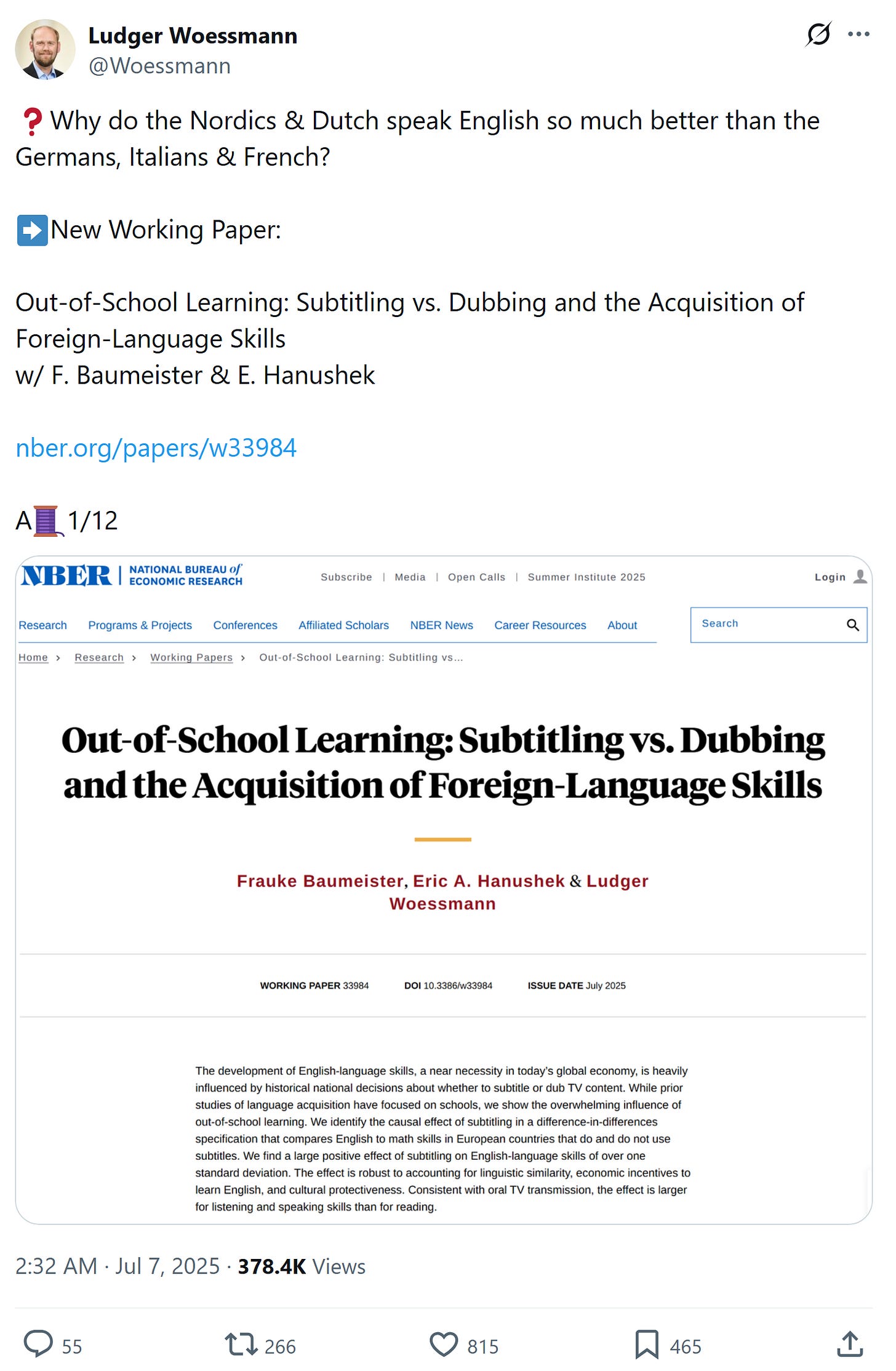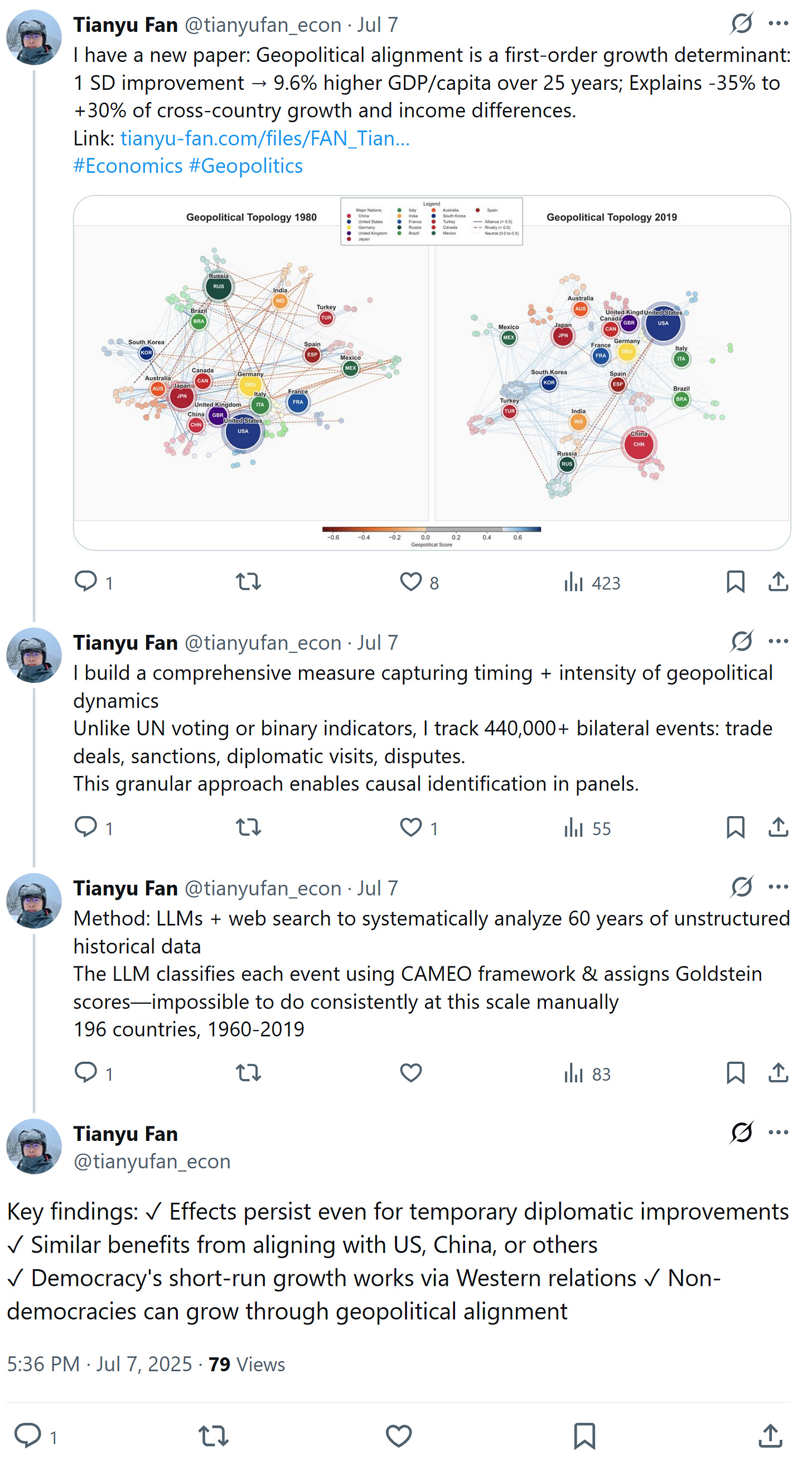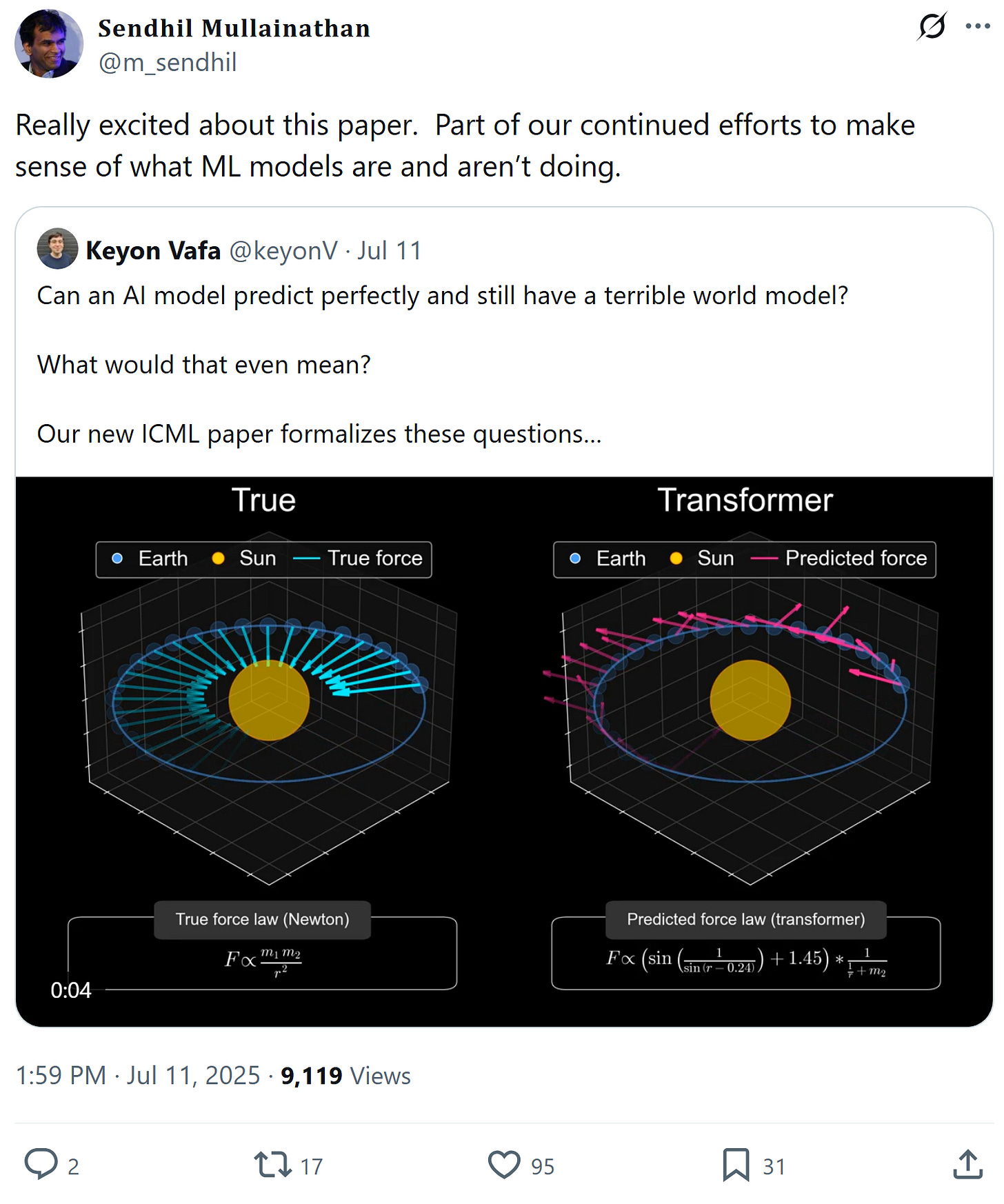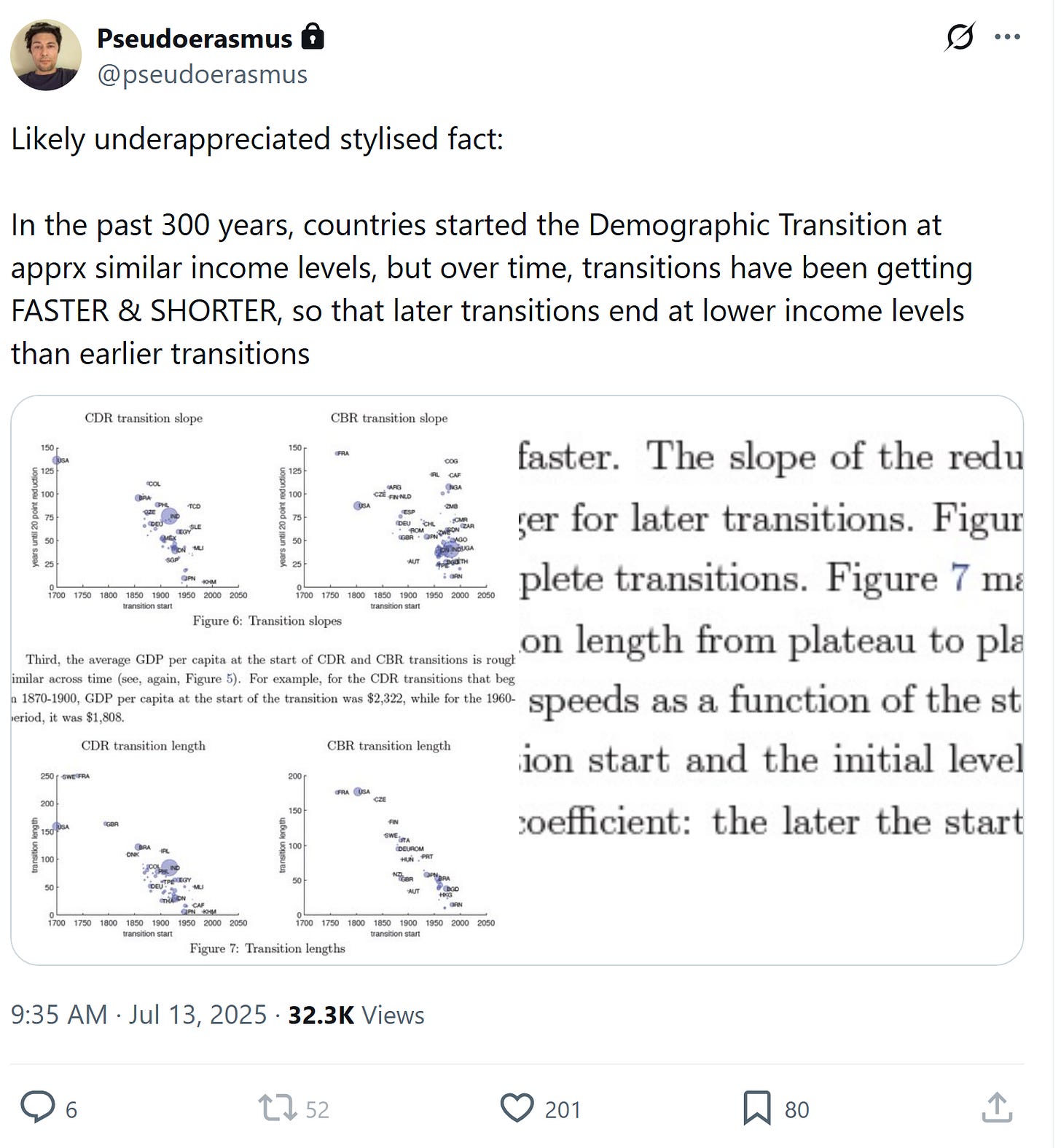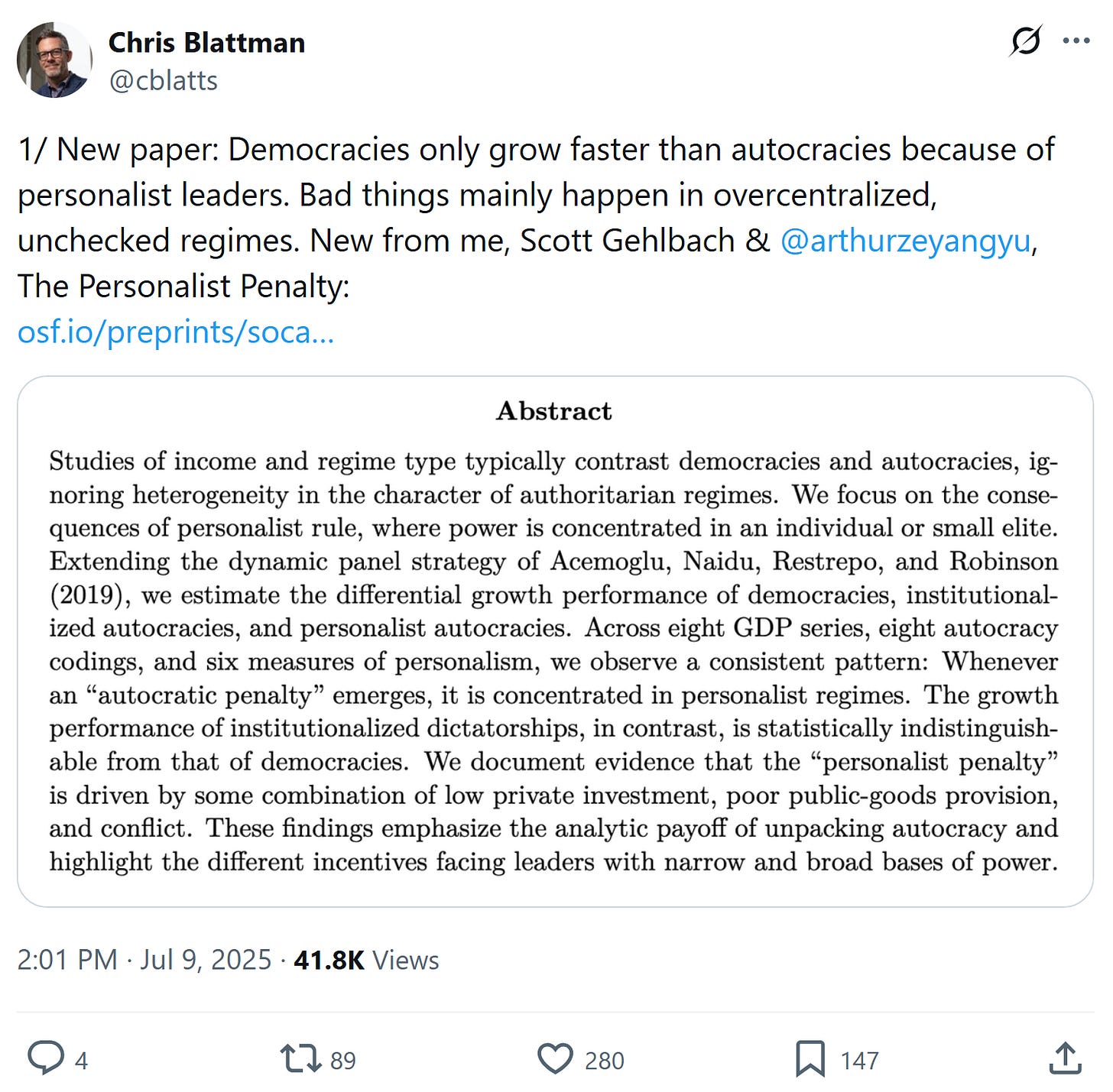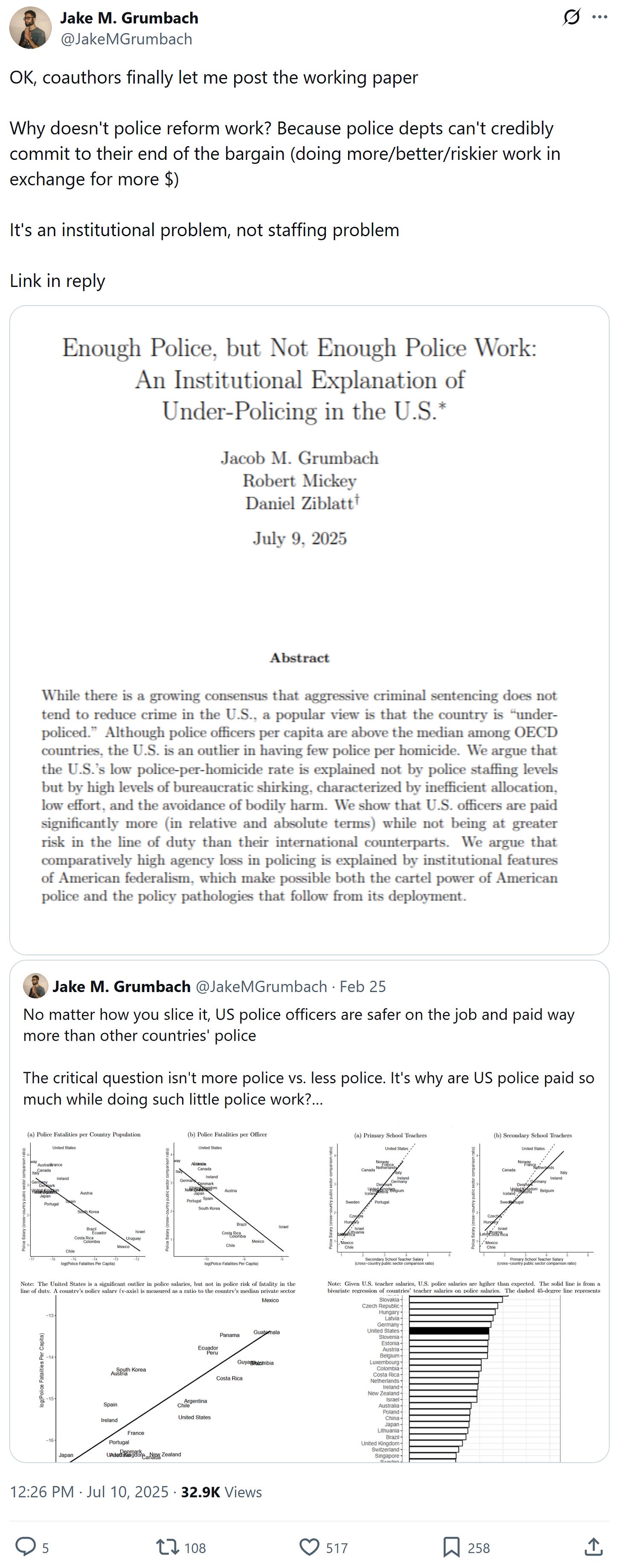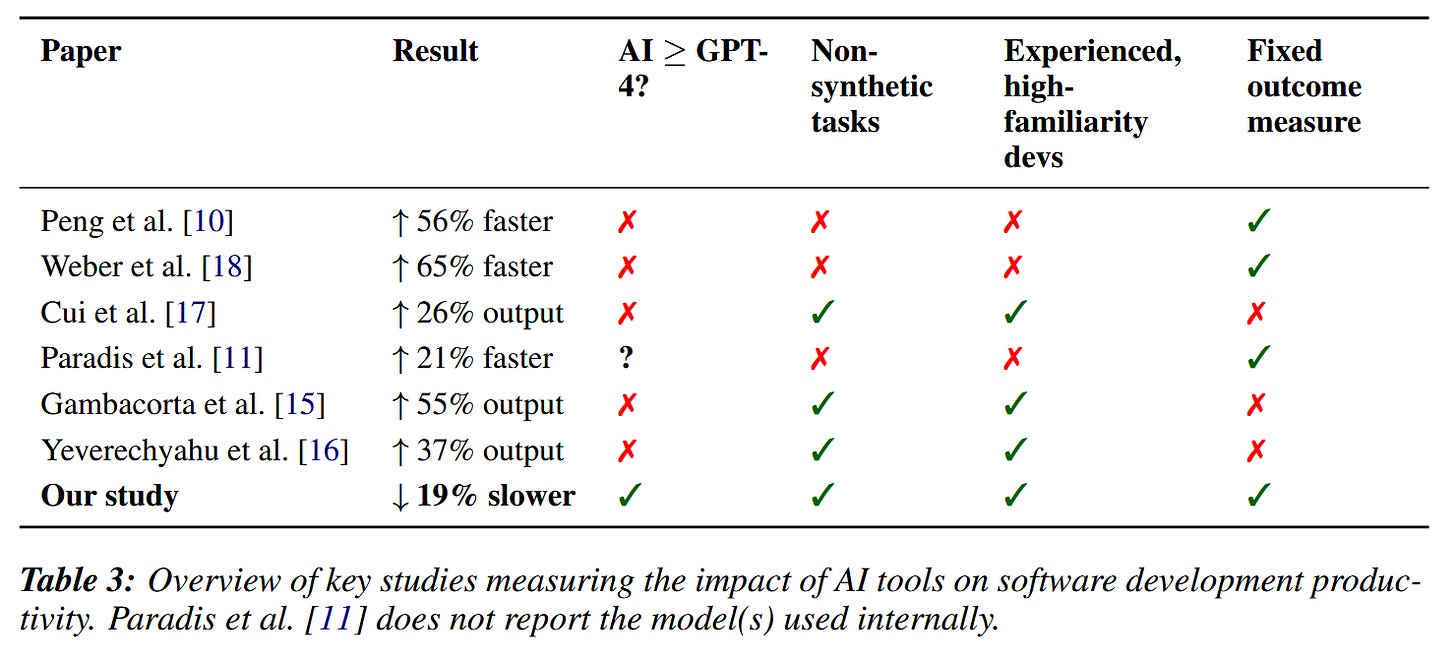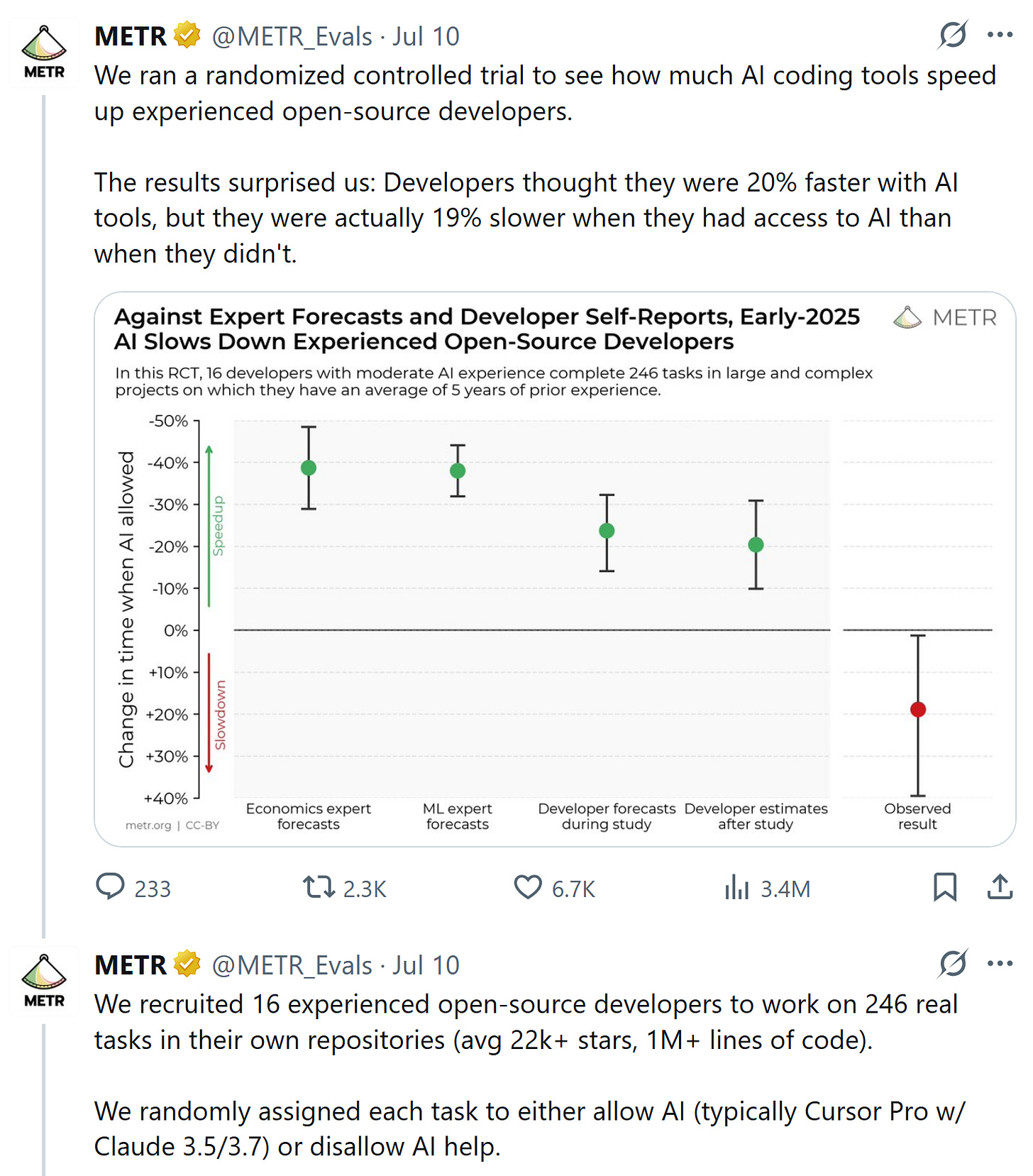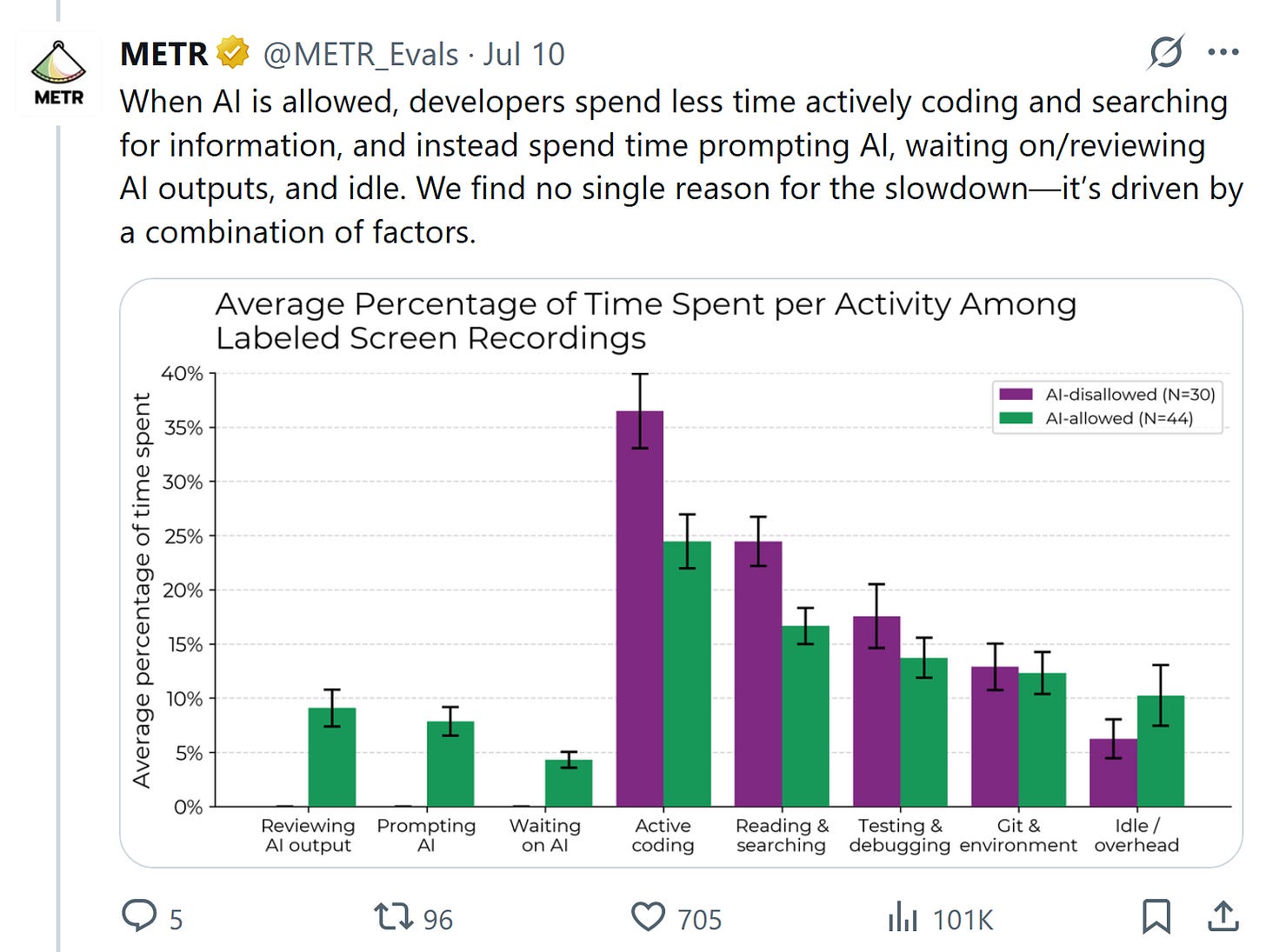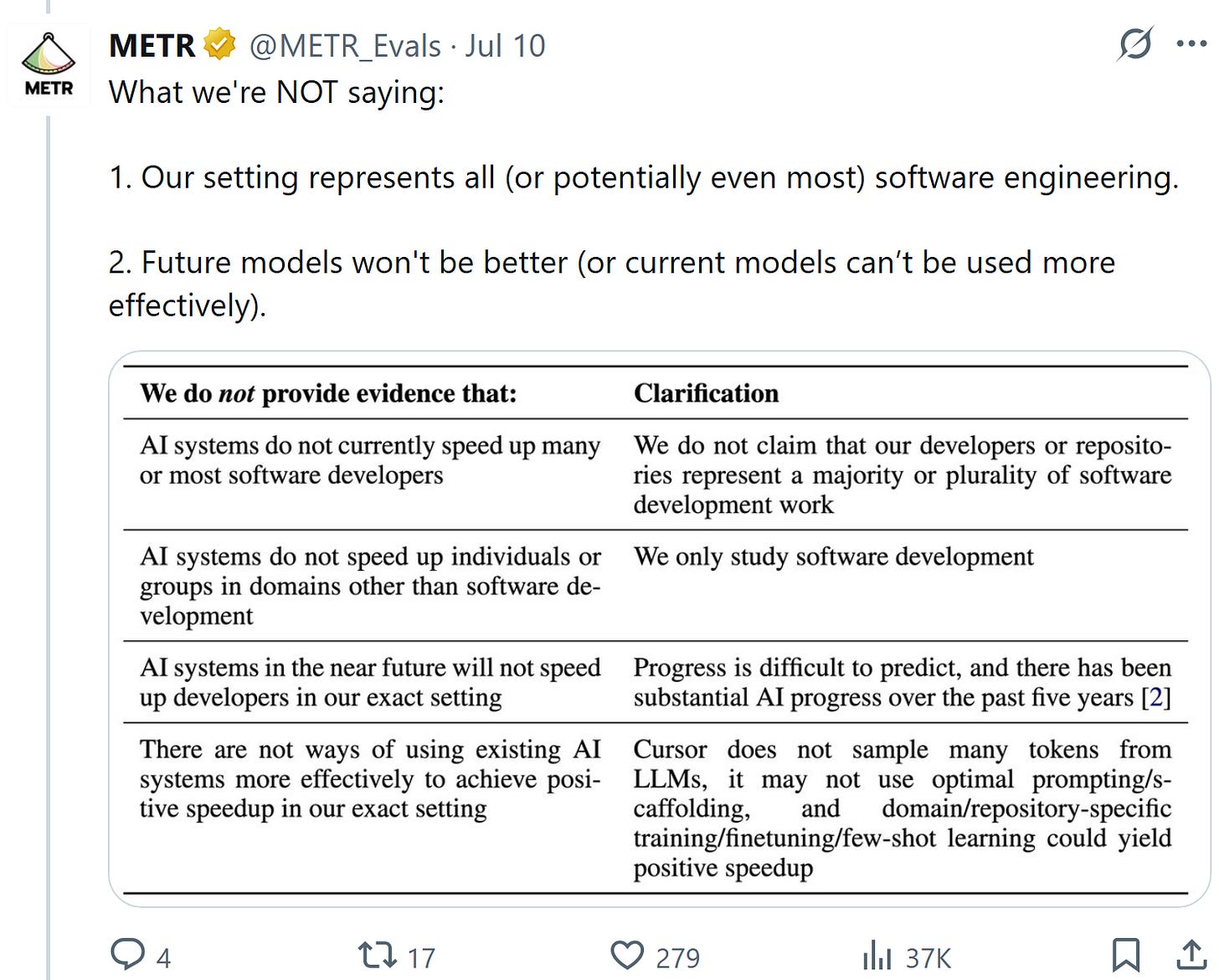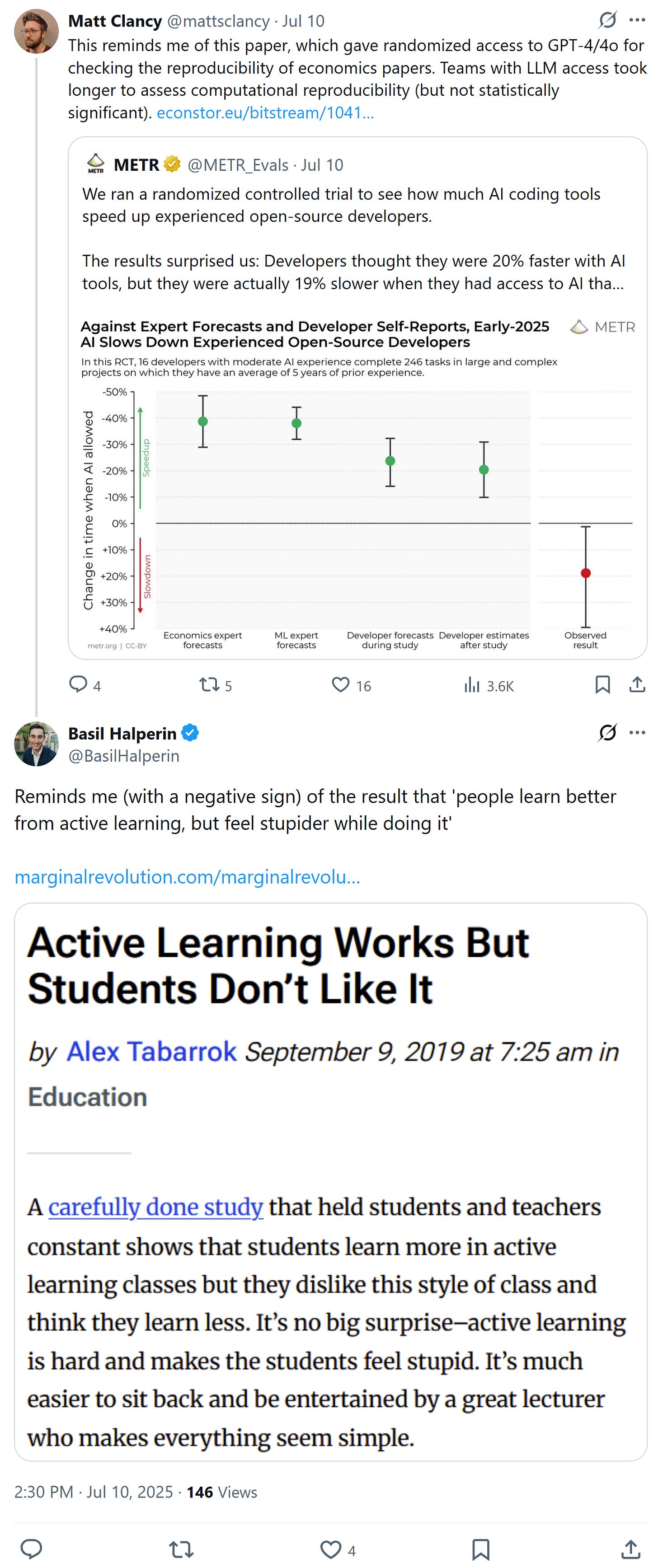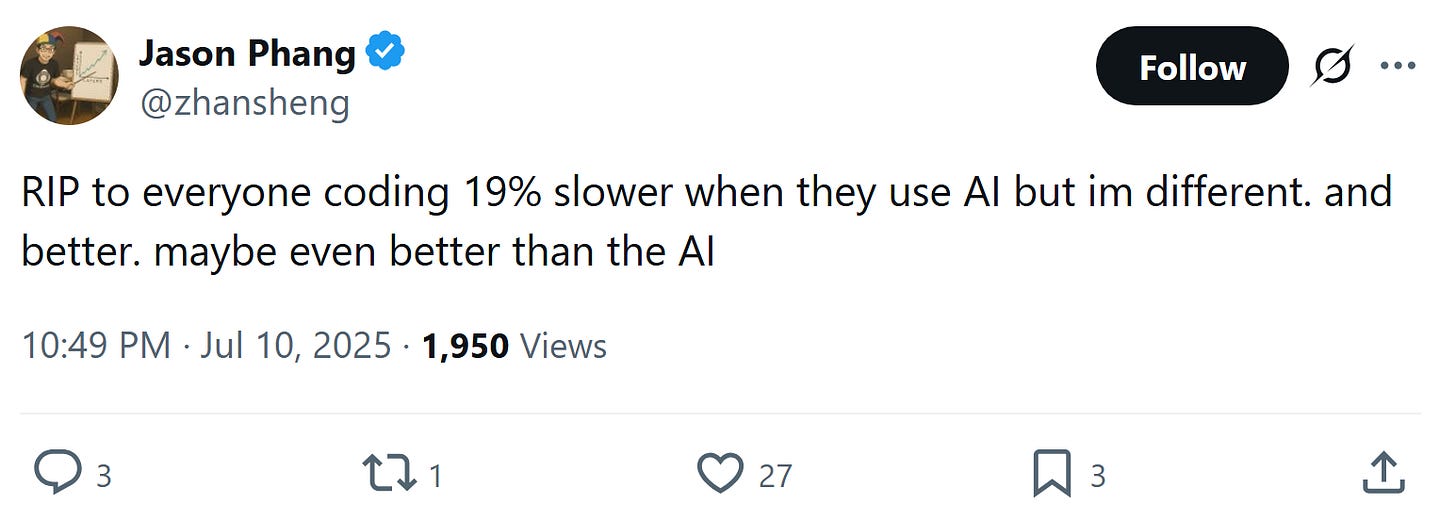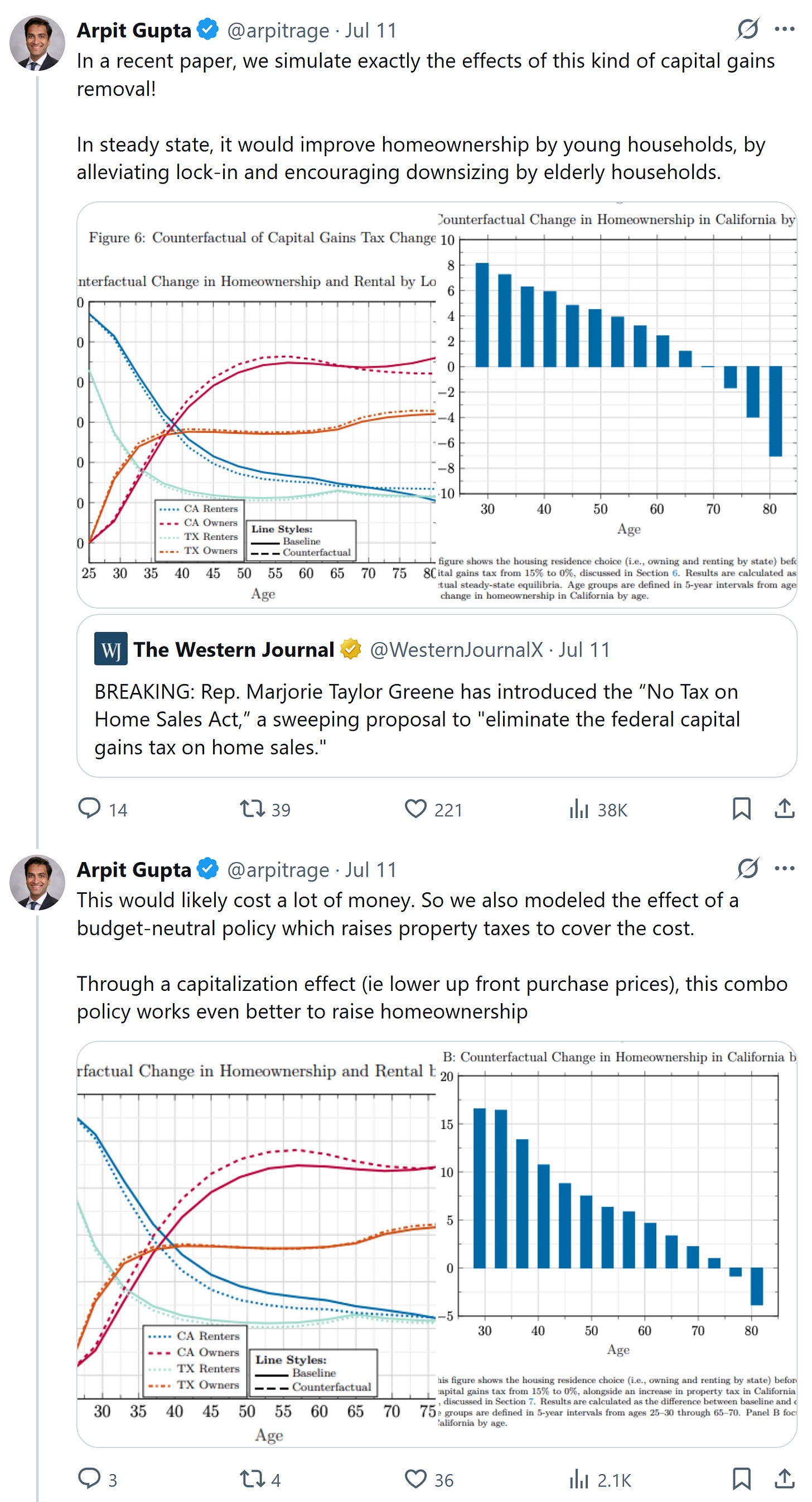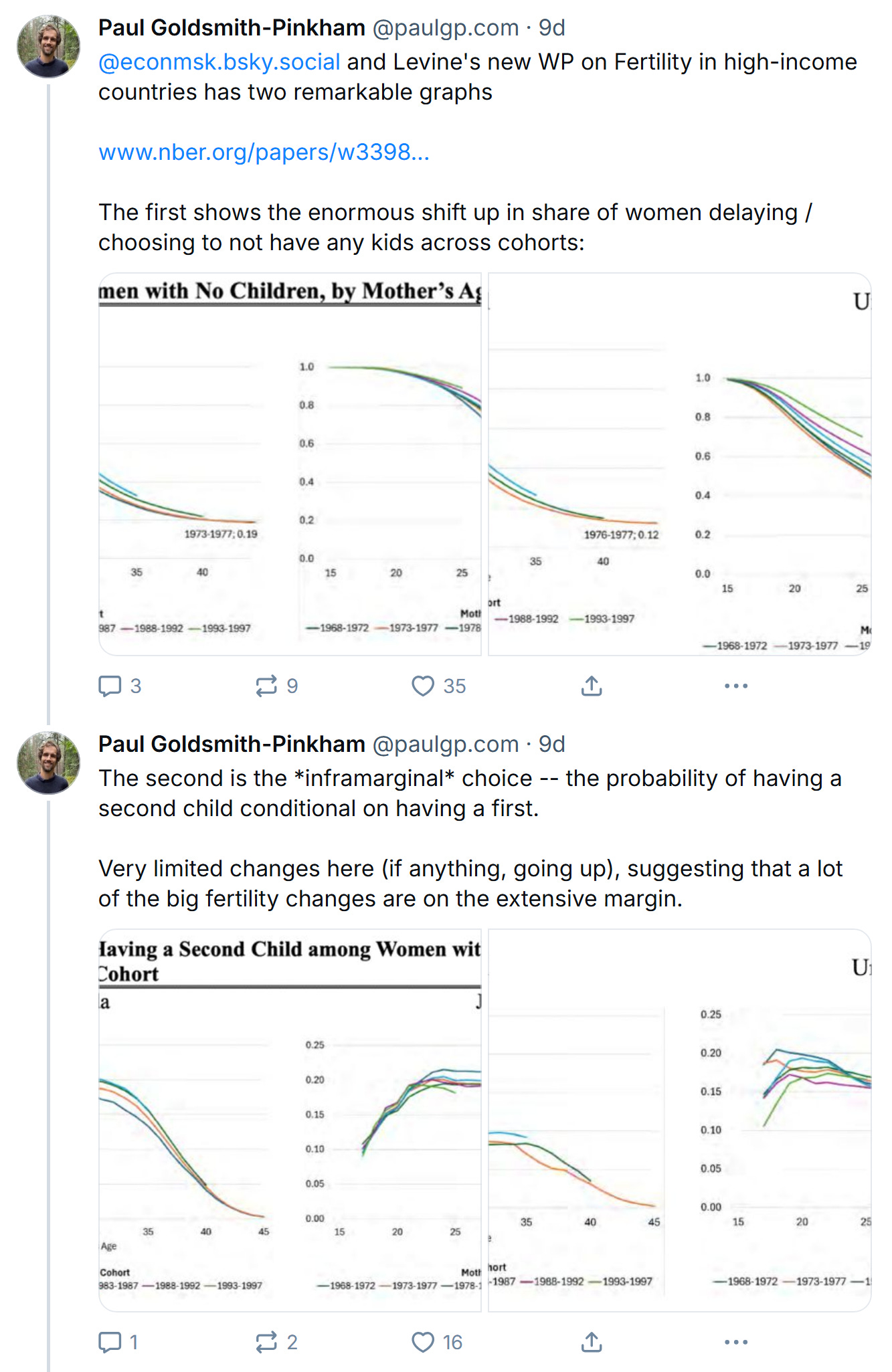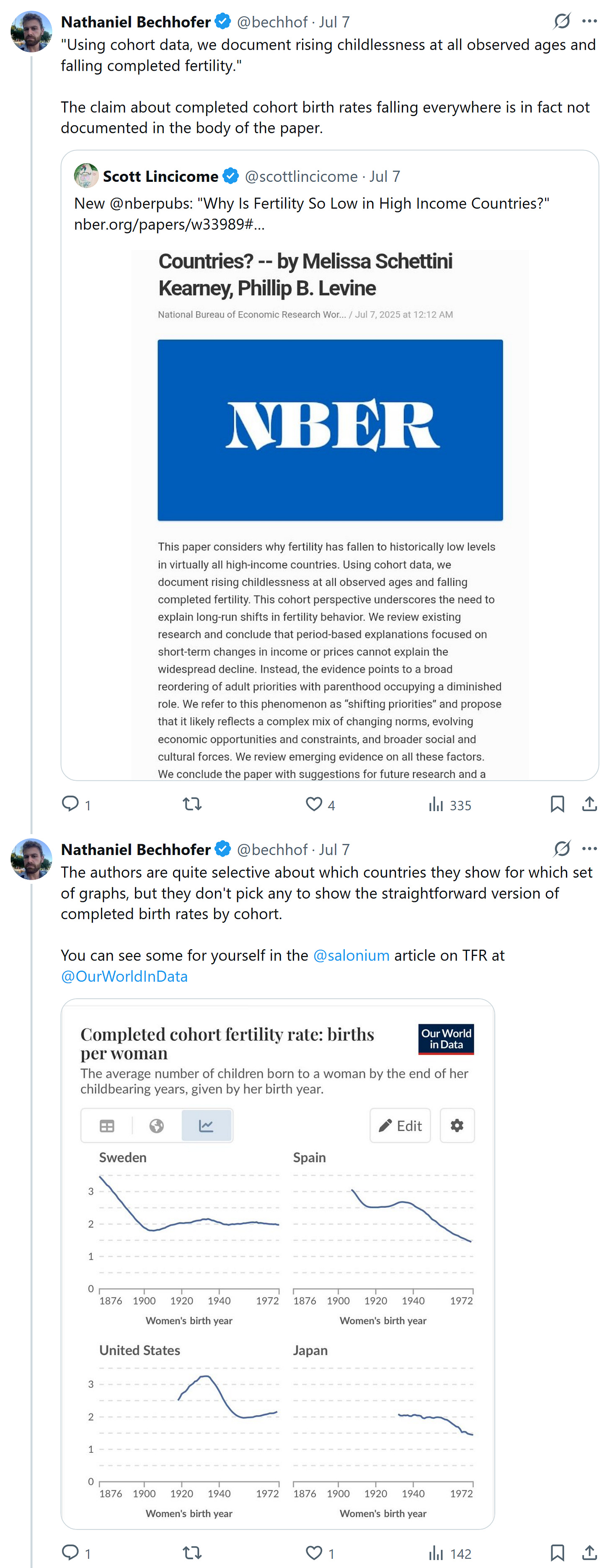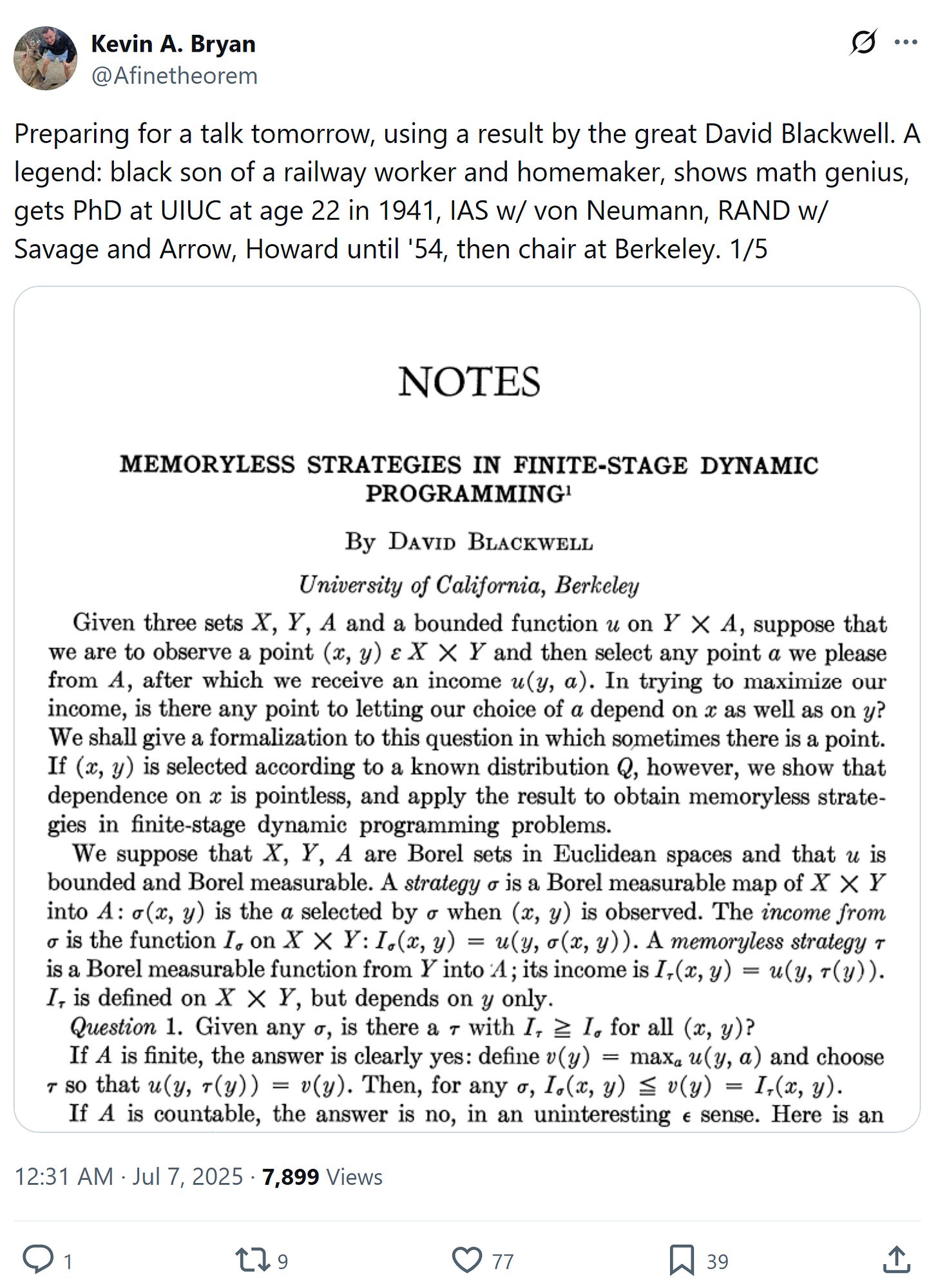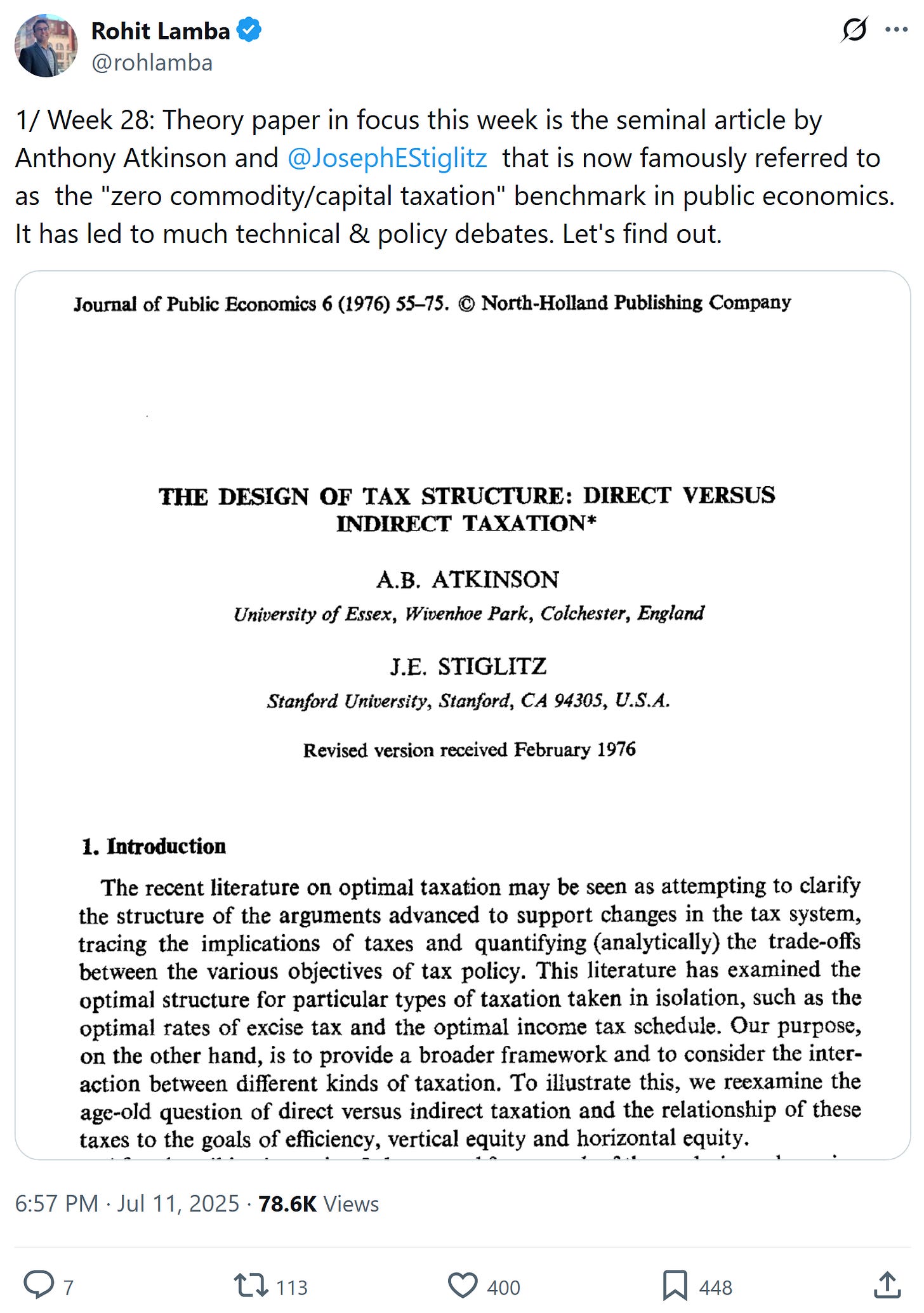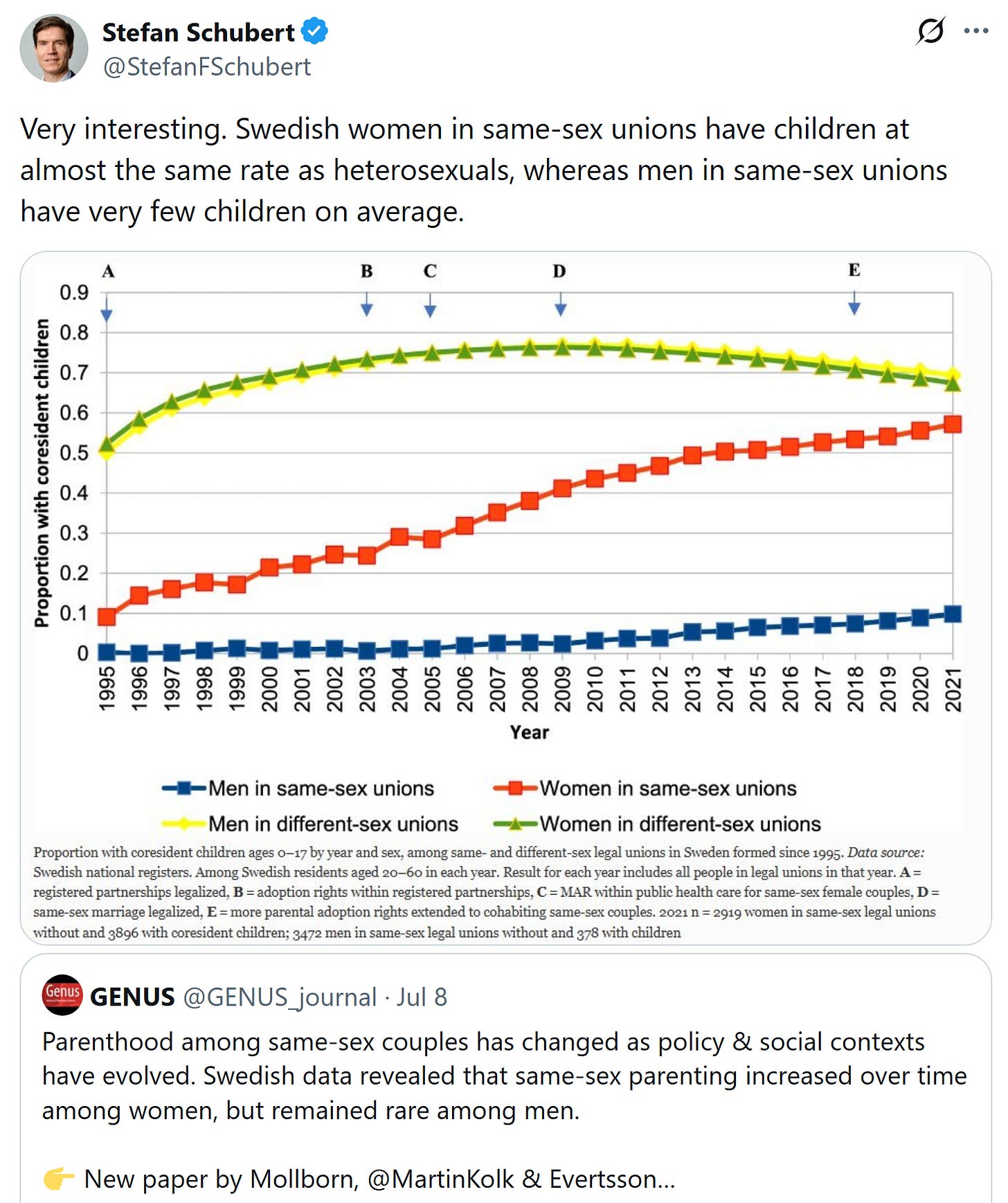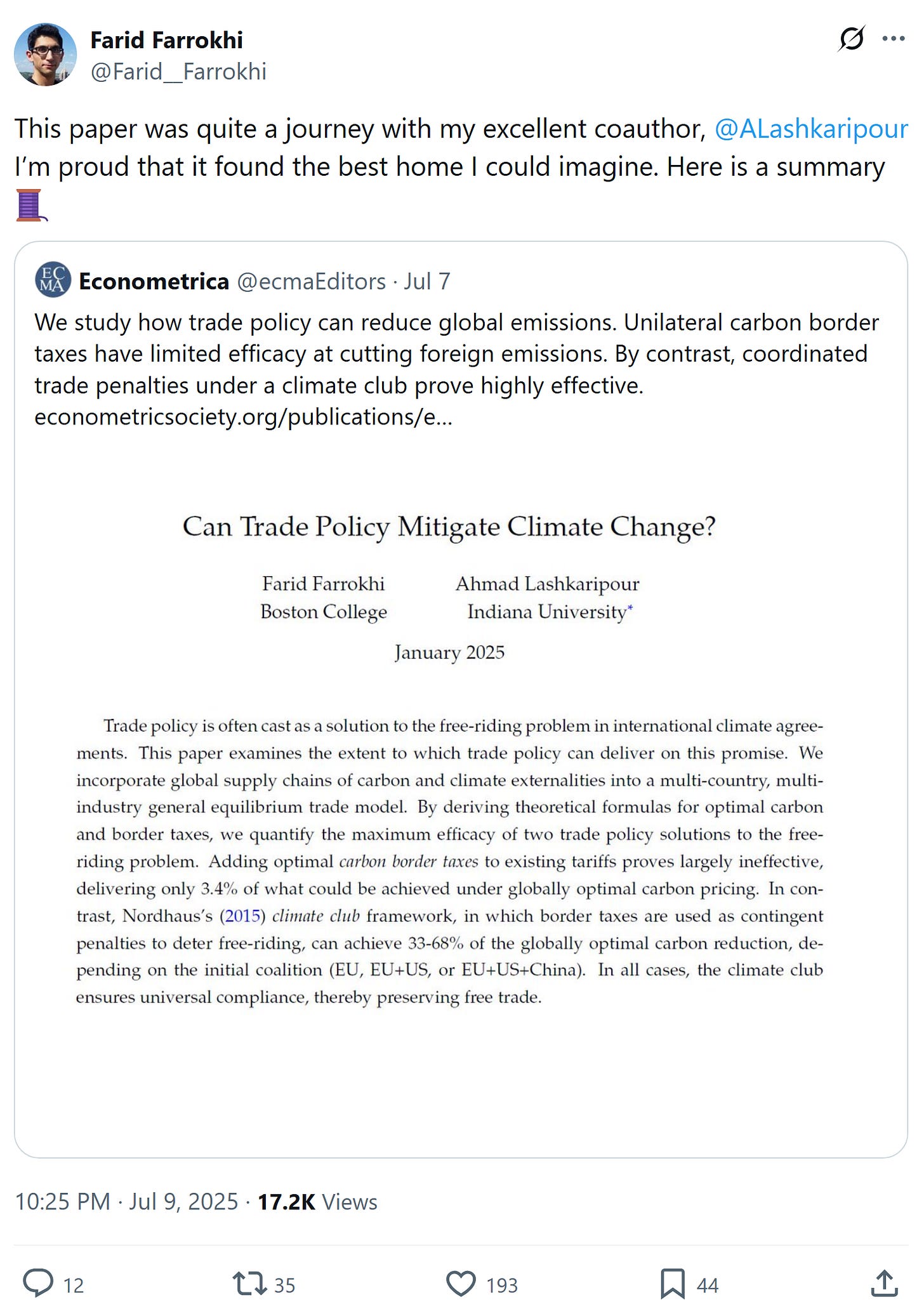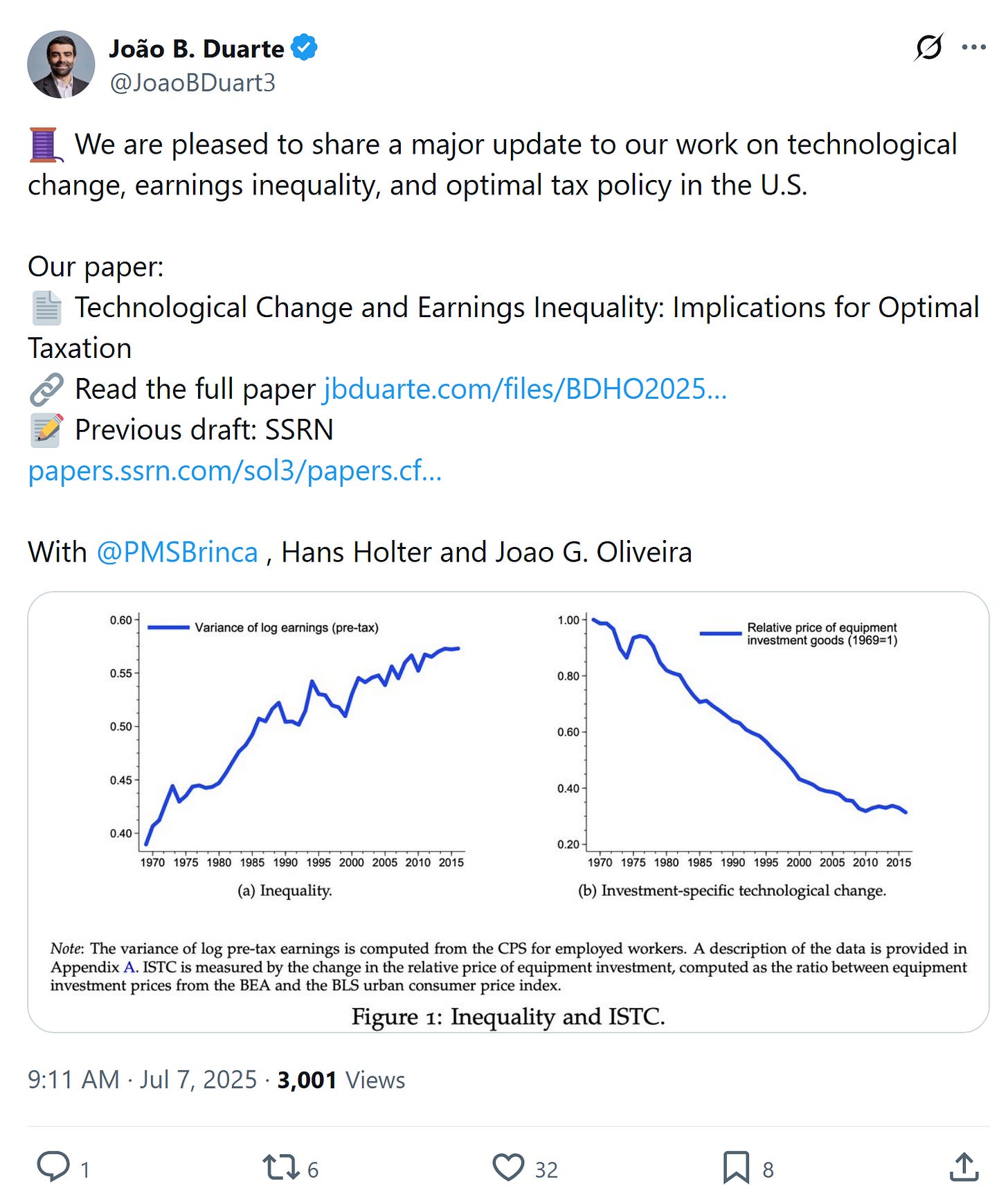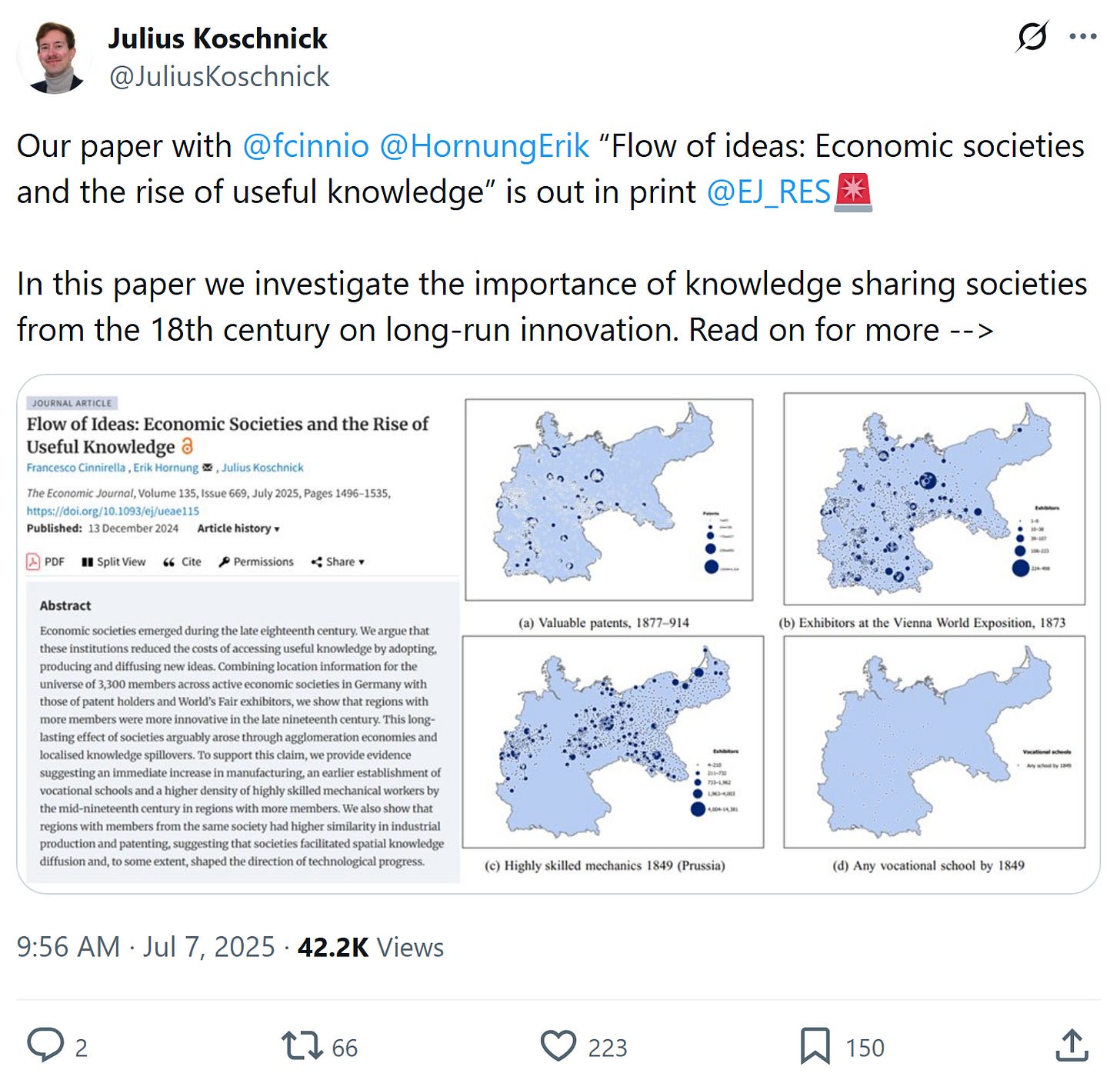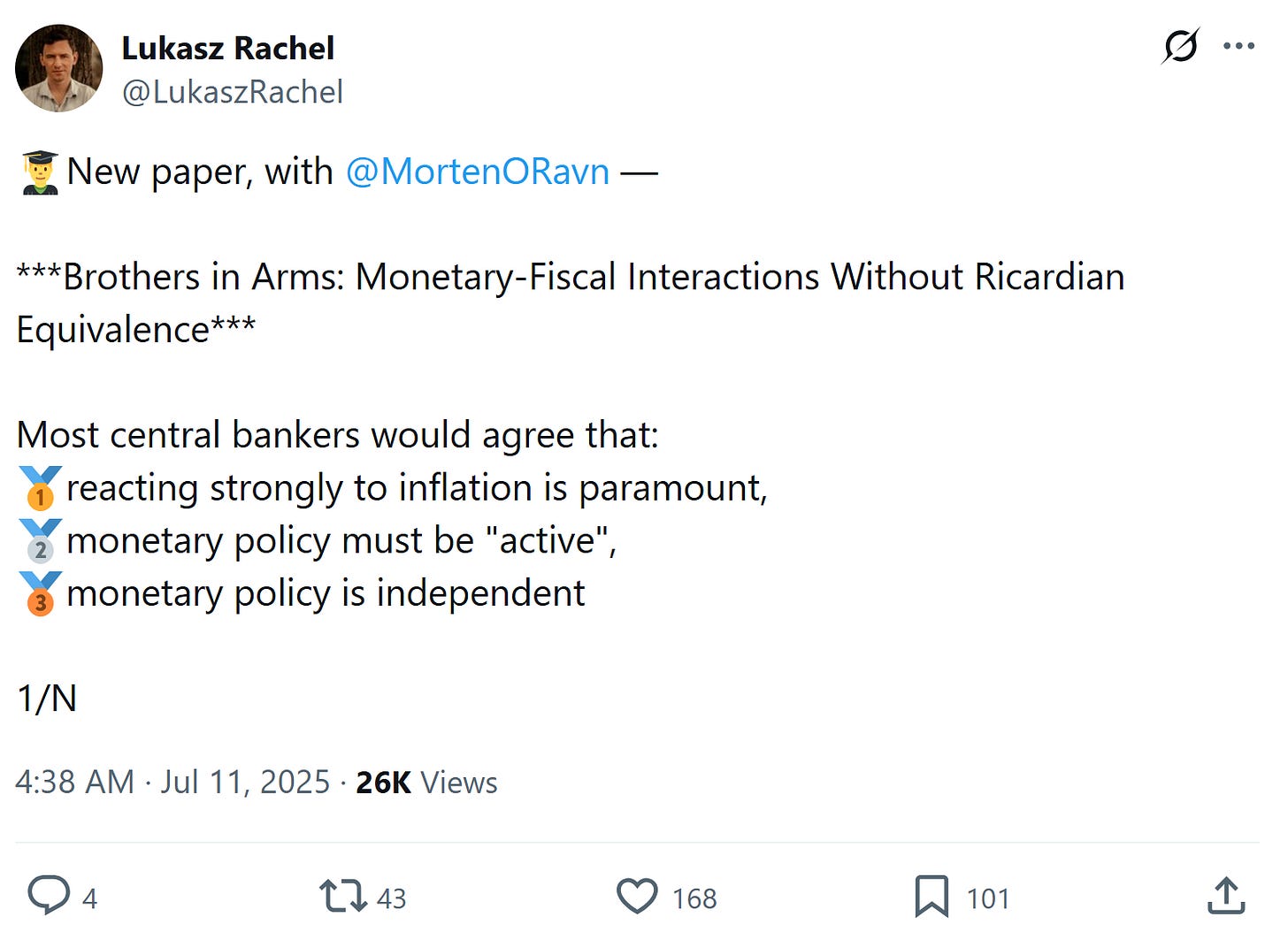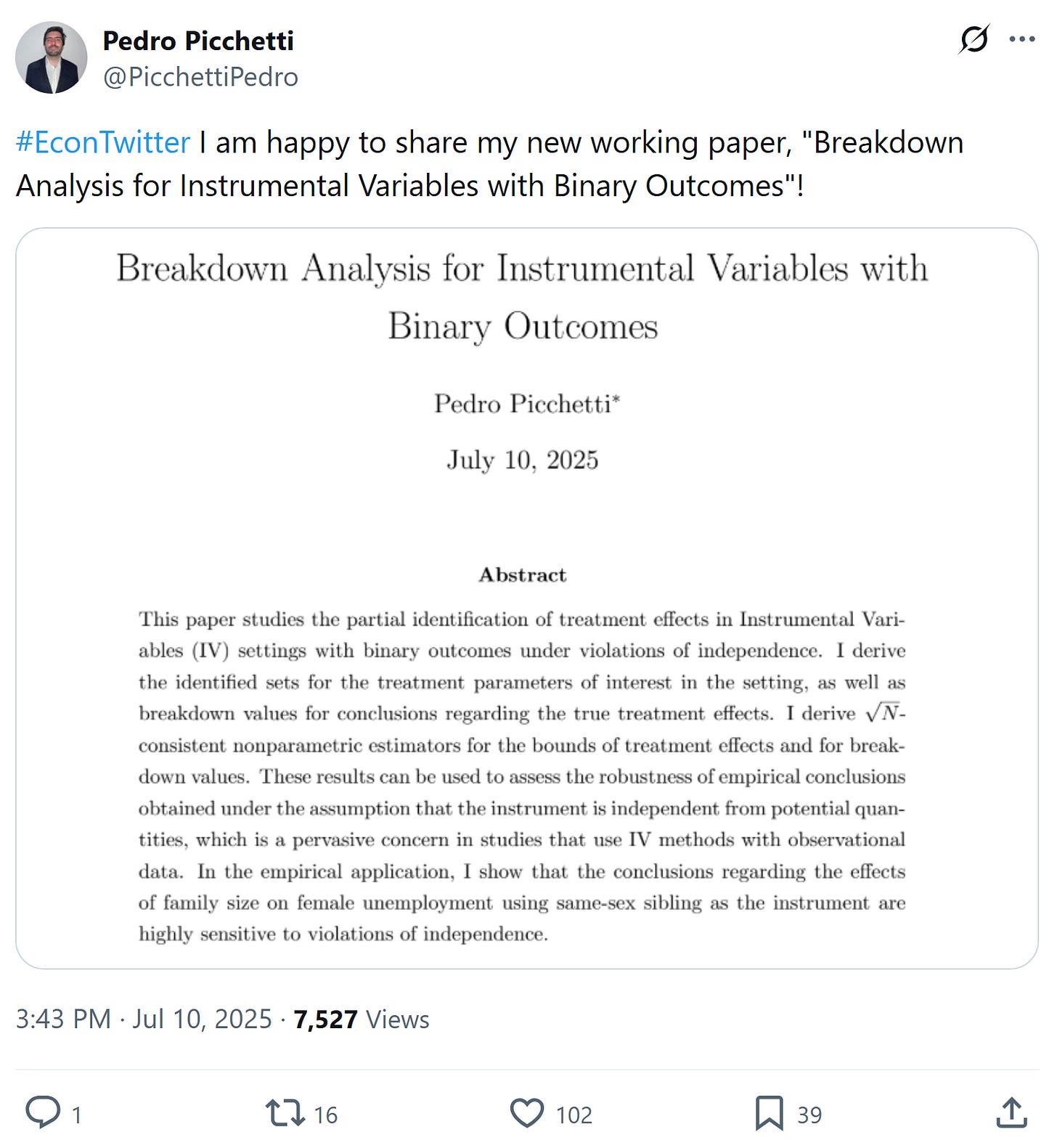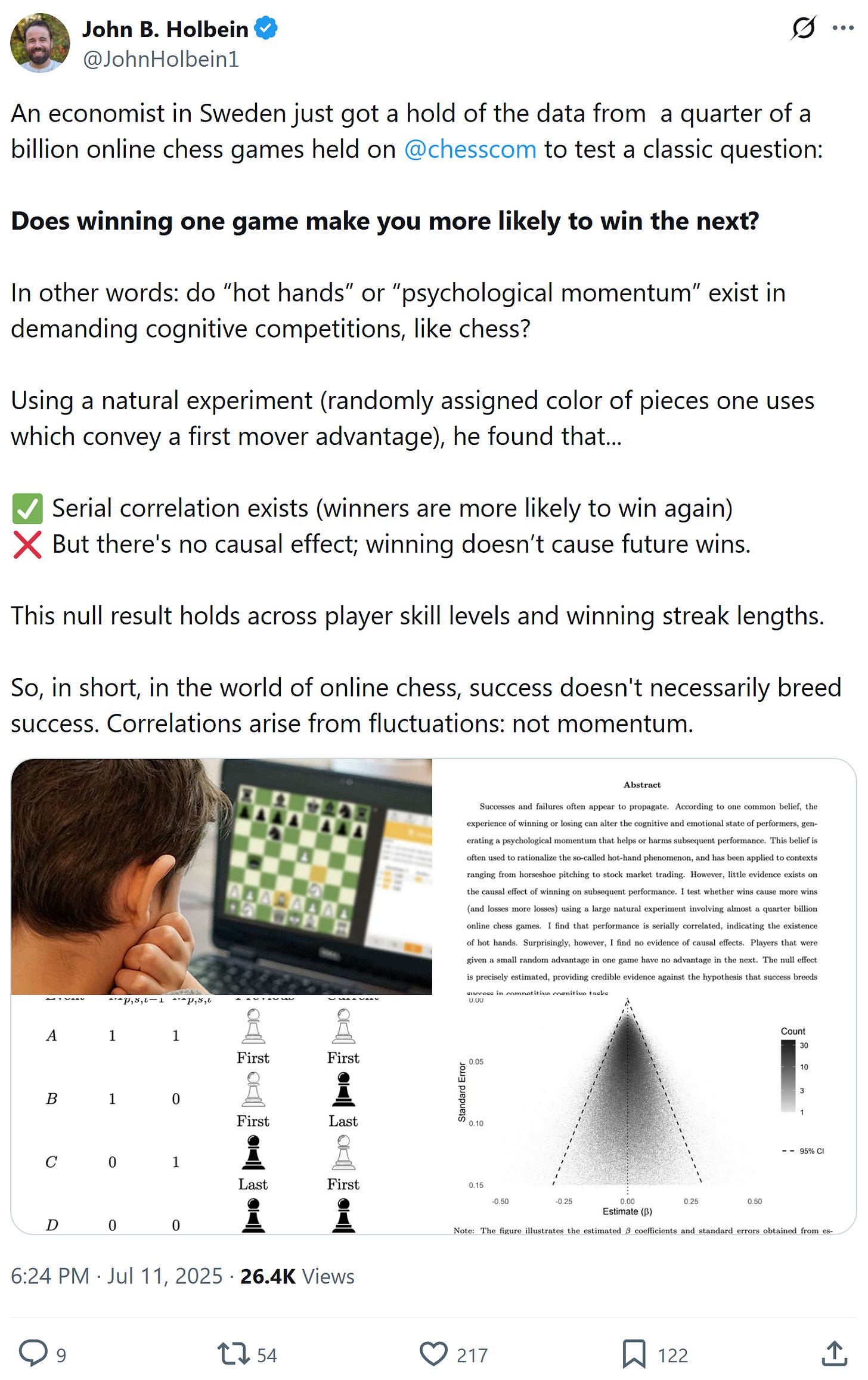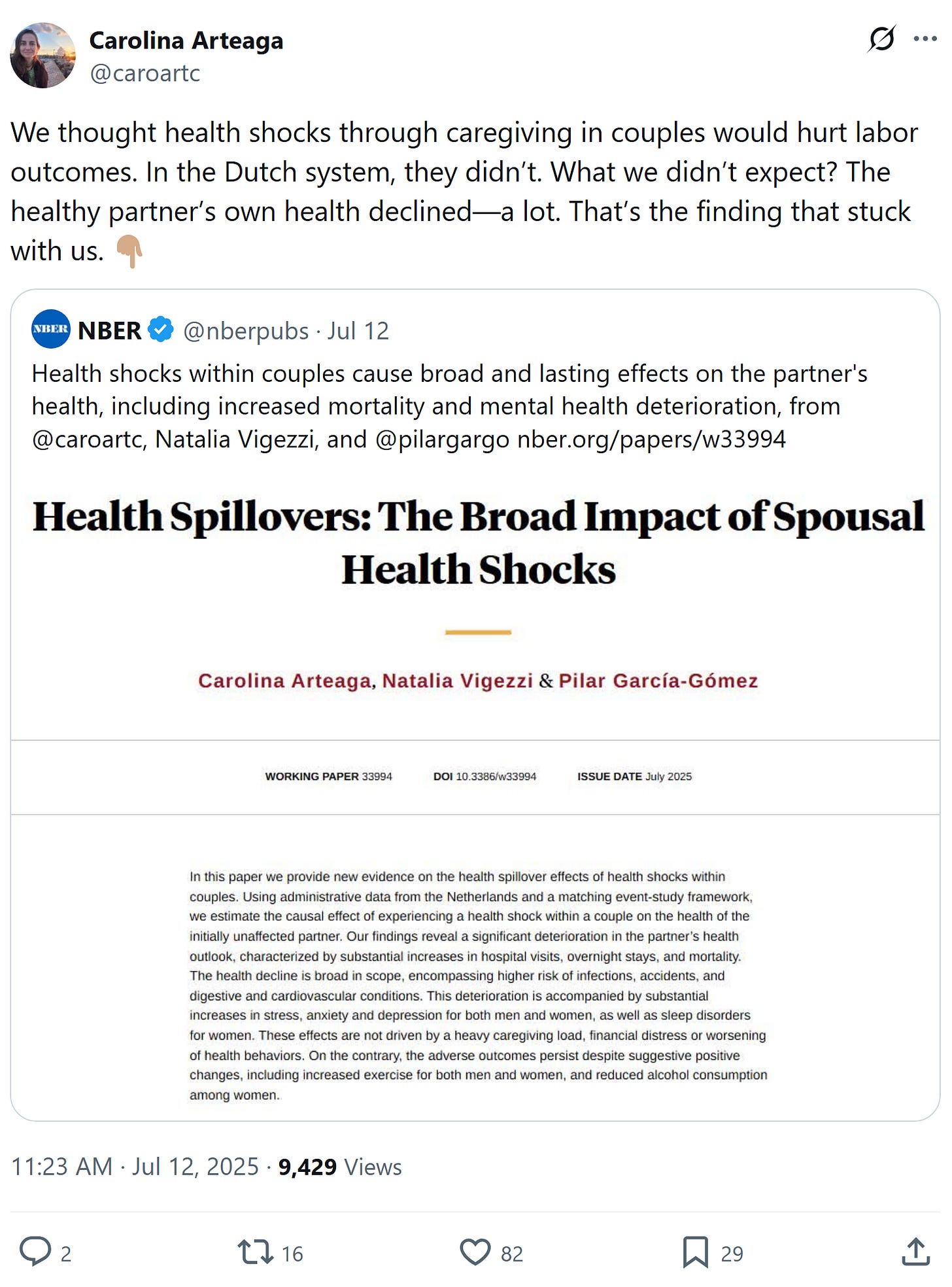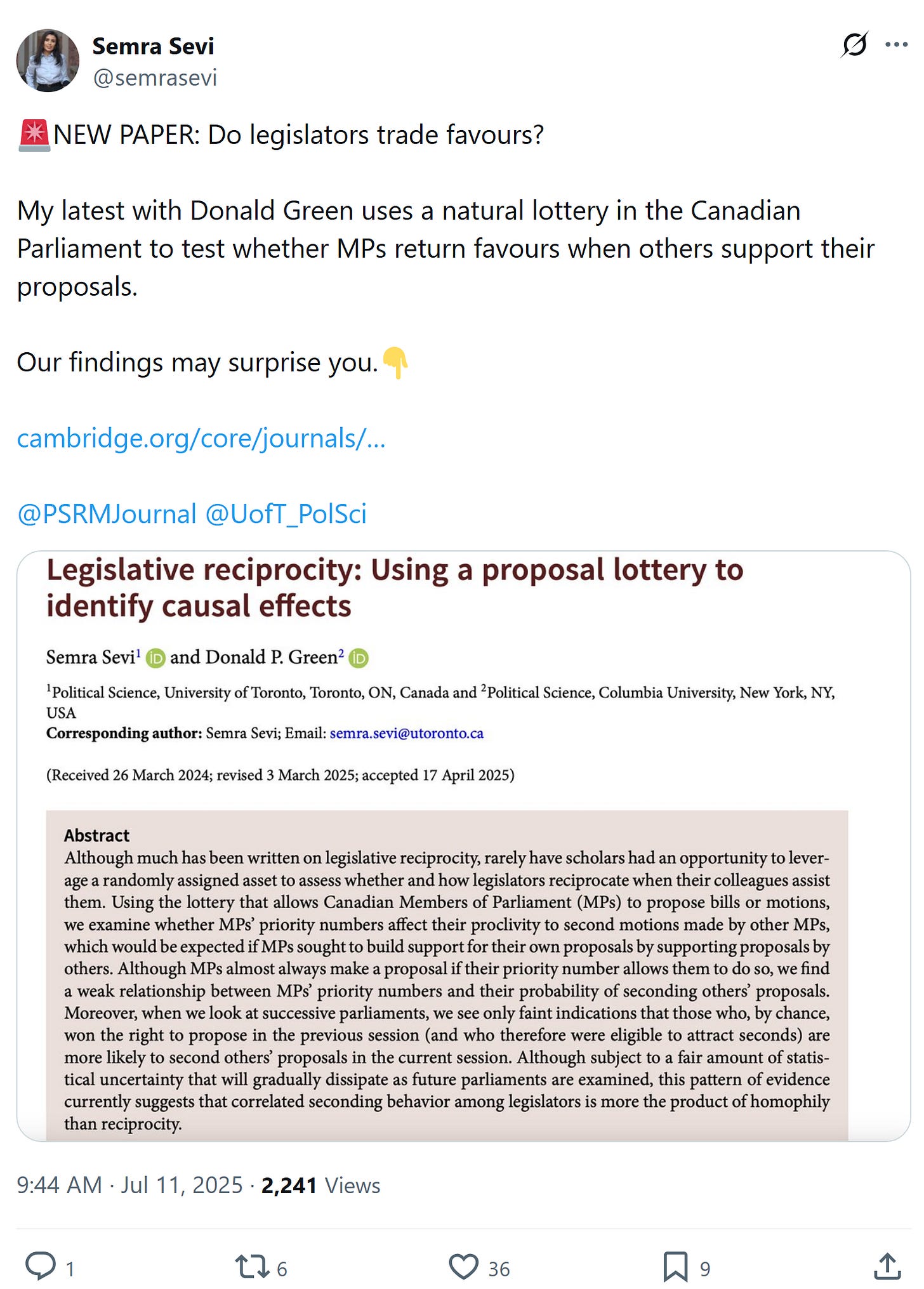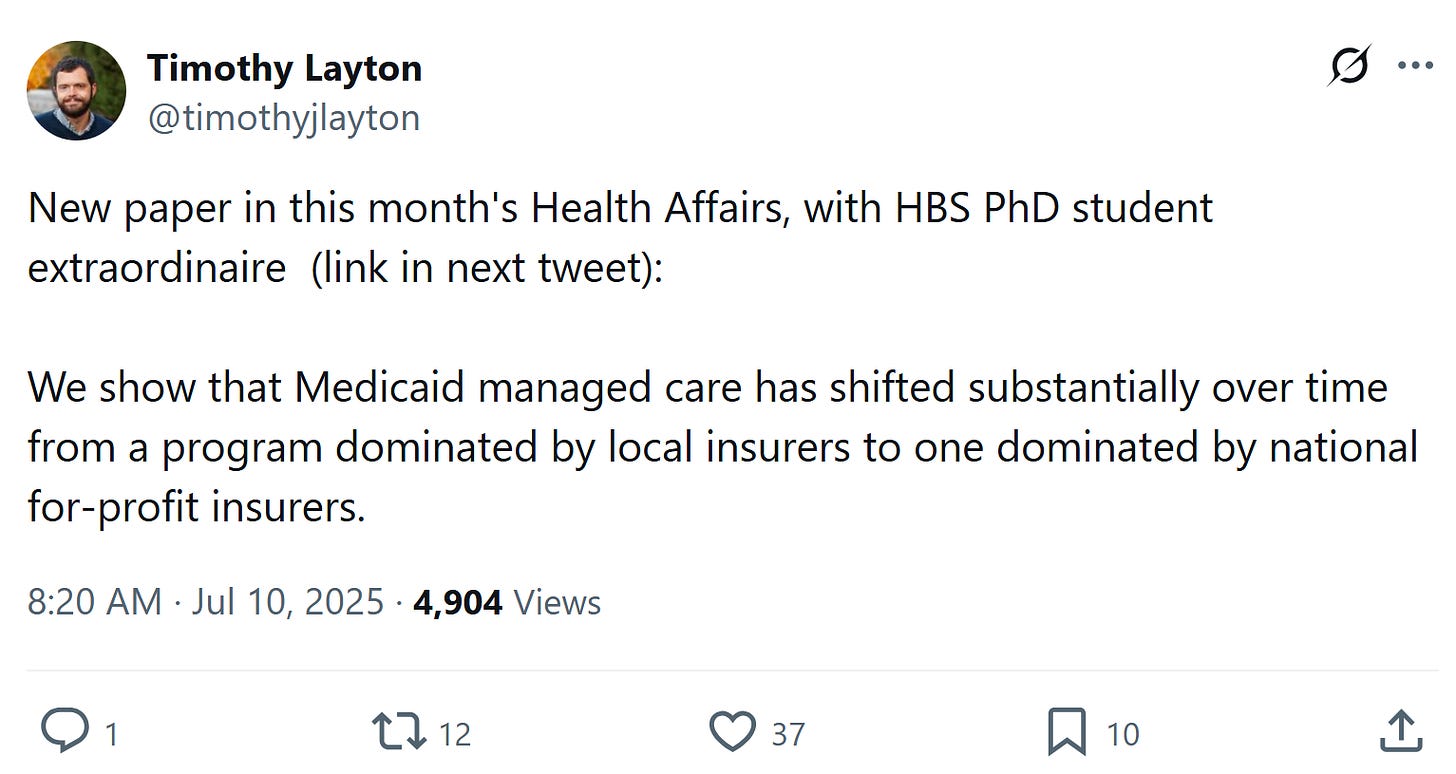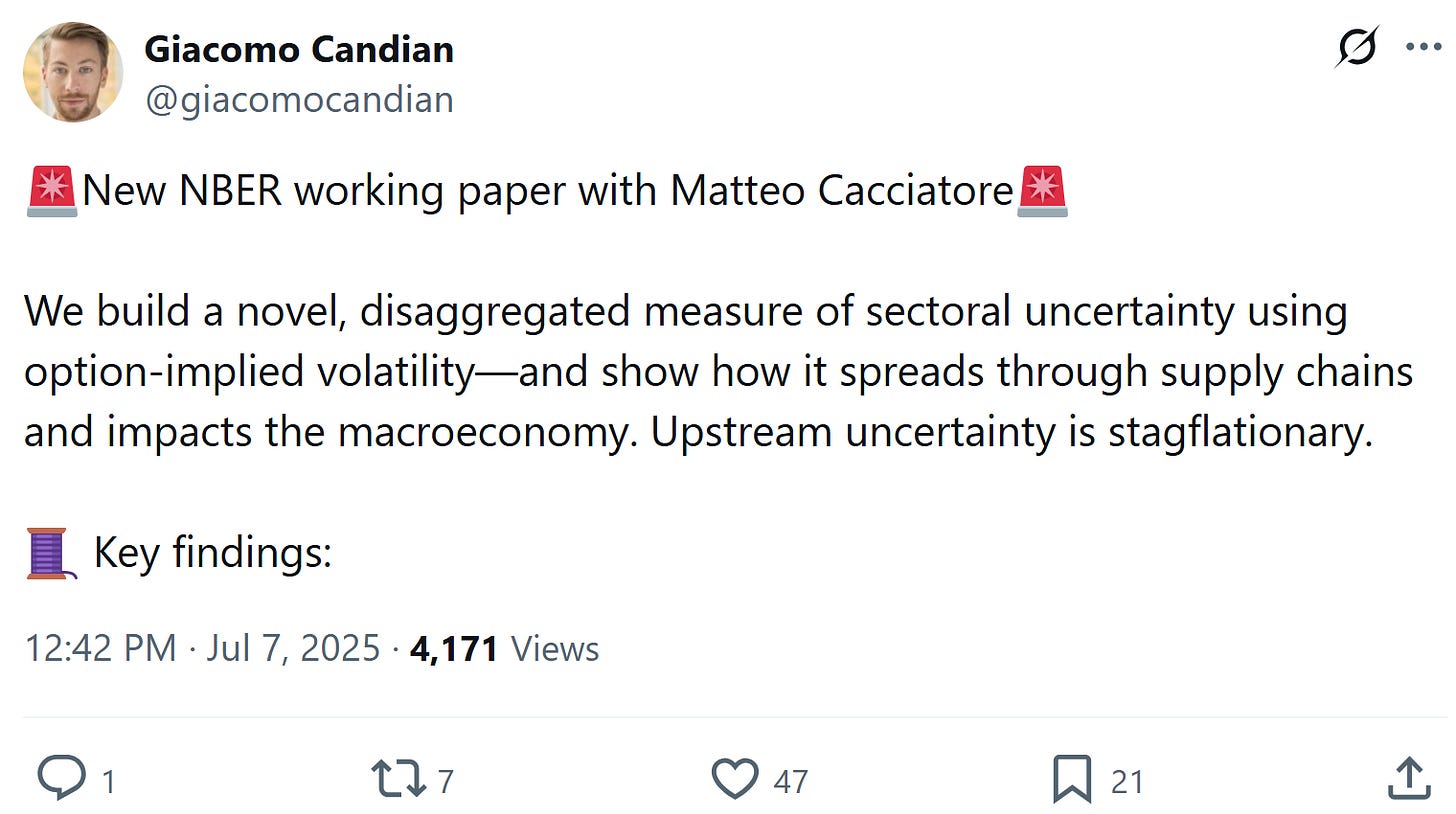Best of #econtwitter - Week of July 13, 2025: paper summaries
Welcome readers old and new to this week’s edition of the Best of Econtwitter newsletter. Please submit suggestions — very much including your own work! — over email or on Twitter @just_economics.
Idiosyncratic favorites
^Monetary policy is always and everywhere about expectations, as Nick Rowe once put it
^as far as I can tell, this paper is a relabeling of descriptive facts: it shows that the US (1) is rich and pays high wages + (2) has a high crime rate. That is, there is not any measurement of the titular “not enough police work” or of shirking. If this interpretation is incorrect I would be interested to know
The METR AI RCT
A particularly tough problem in the blooming experimental literature measuring the effect of AI on productivity — “give half of the engineers access to ChatGPT, but not the other half; what happens” — is defining the right metric of output.
For example, if ChatGPT is more verbose than human coders (spoilers: yes), then studies measuring “the effect of AI on the number of lines of codes” can be hard to interpret. That is, you want a fixed outcome measure. Similarly for measures like ‘number of pull requests’.
It’s easy to have a fixed outcome measure in a controlled lab experiment; but what about in the field?
“Our study” in the bottom row of the above table — the only paper with both a fixed outcome measure and “non-synthetic tasks”, i.e. in the field — is the new blockbuster from the think tank METR:
^note importantly that this is a particular population: experienced developers working in a codebase with which they are extremely familiar. Results may be different for populations inexperienced with a particular codebase
This made a lot of AI twitter mad. Anyway:
More paper summaries
^not going to adjudicate this one but
^the newsletter has previously recommended the excellent blog post “K is not capital, L is not labor” from Steve Randy Waldman (an independent rederivation of Jones, Manuelli, and Rossi (1997)). My other take on this literature [especially the most recent top publications] is that you really should be using the ‘timeless perspective’ on optimal policy when it comes to intertemporal questions…


